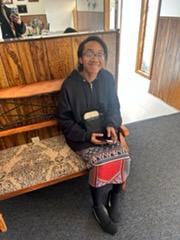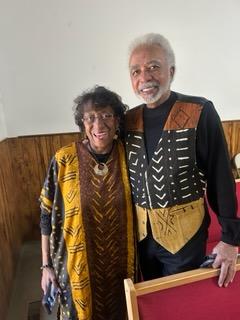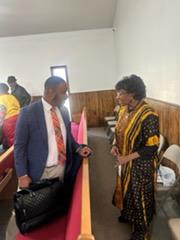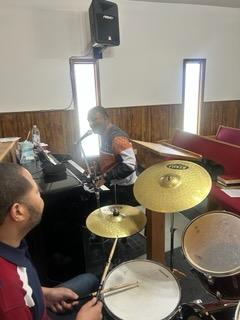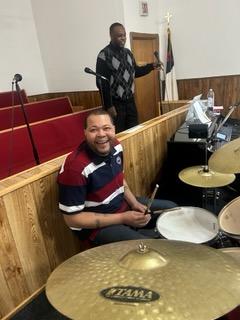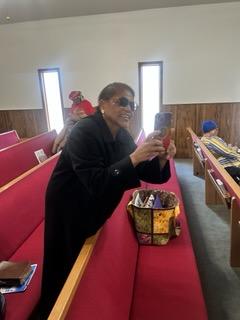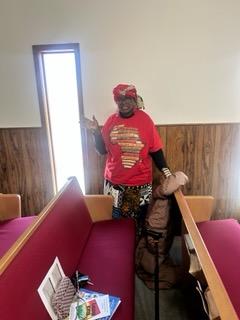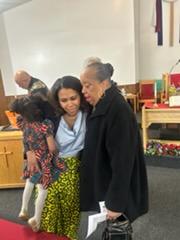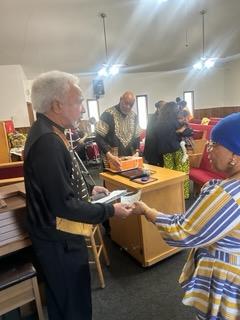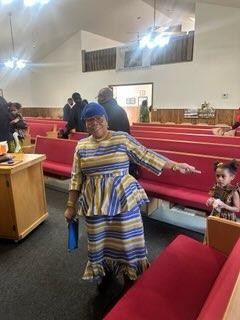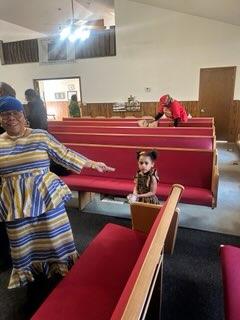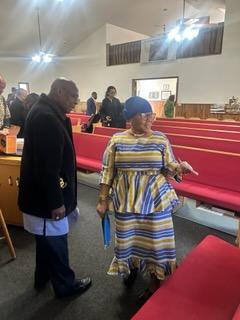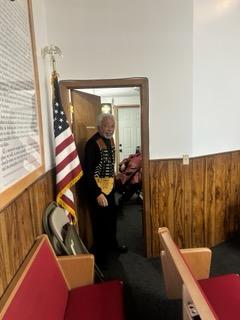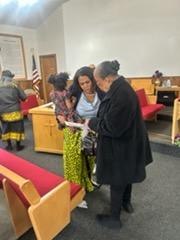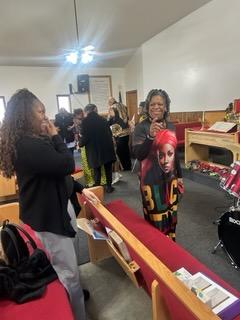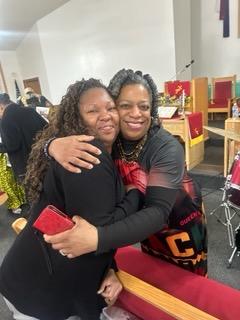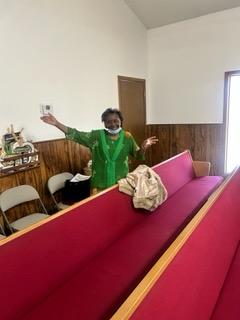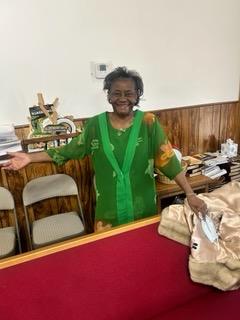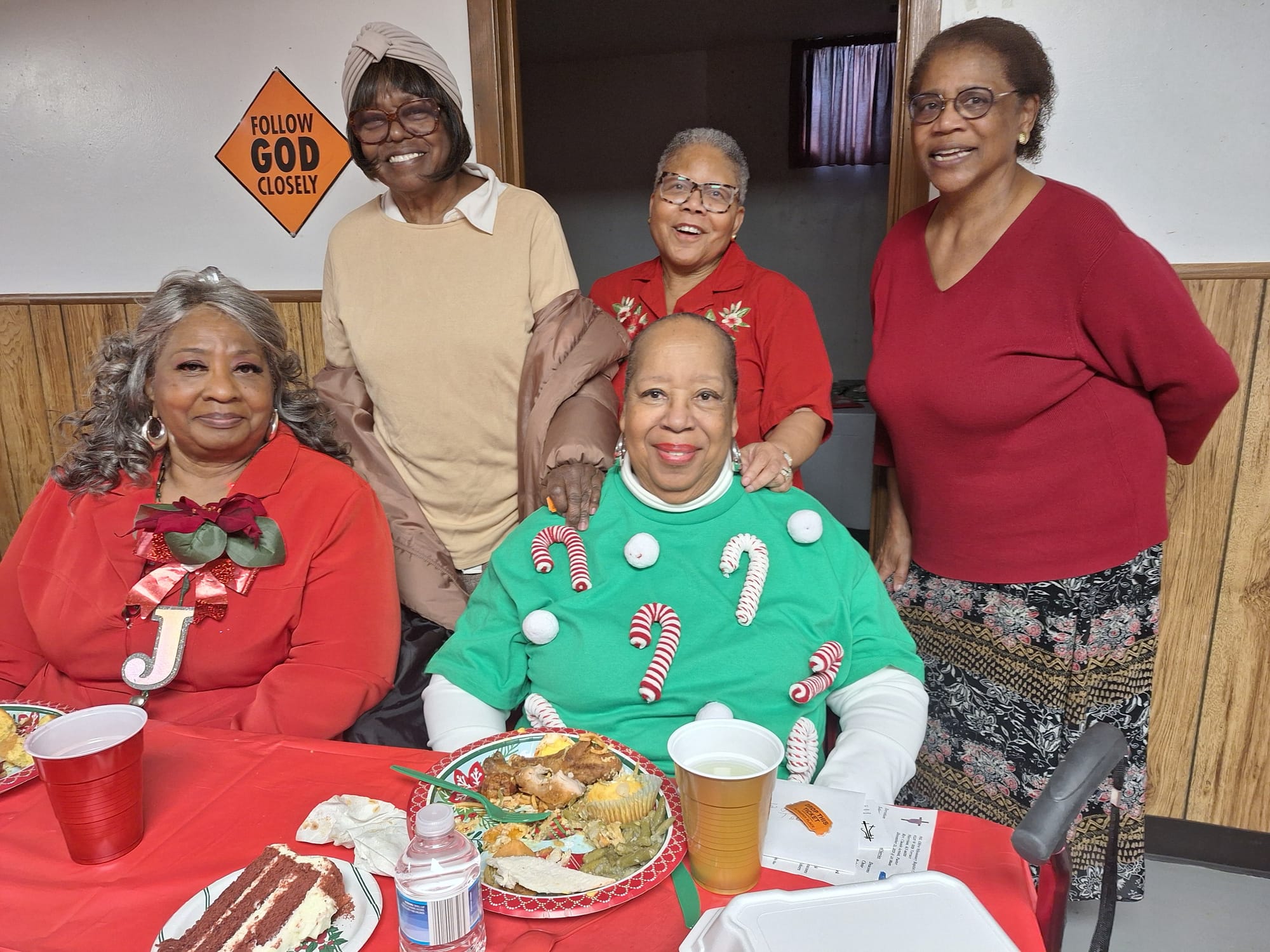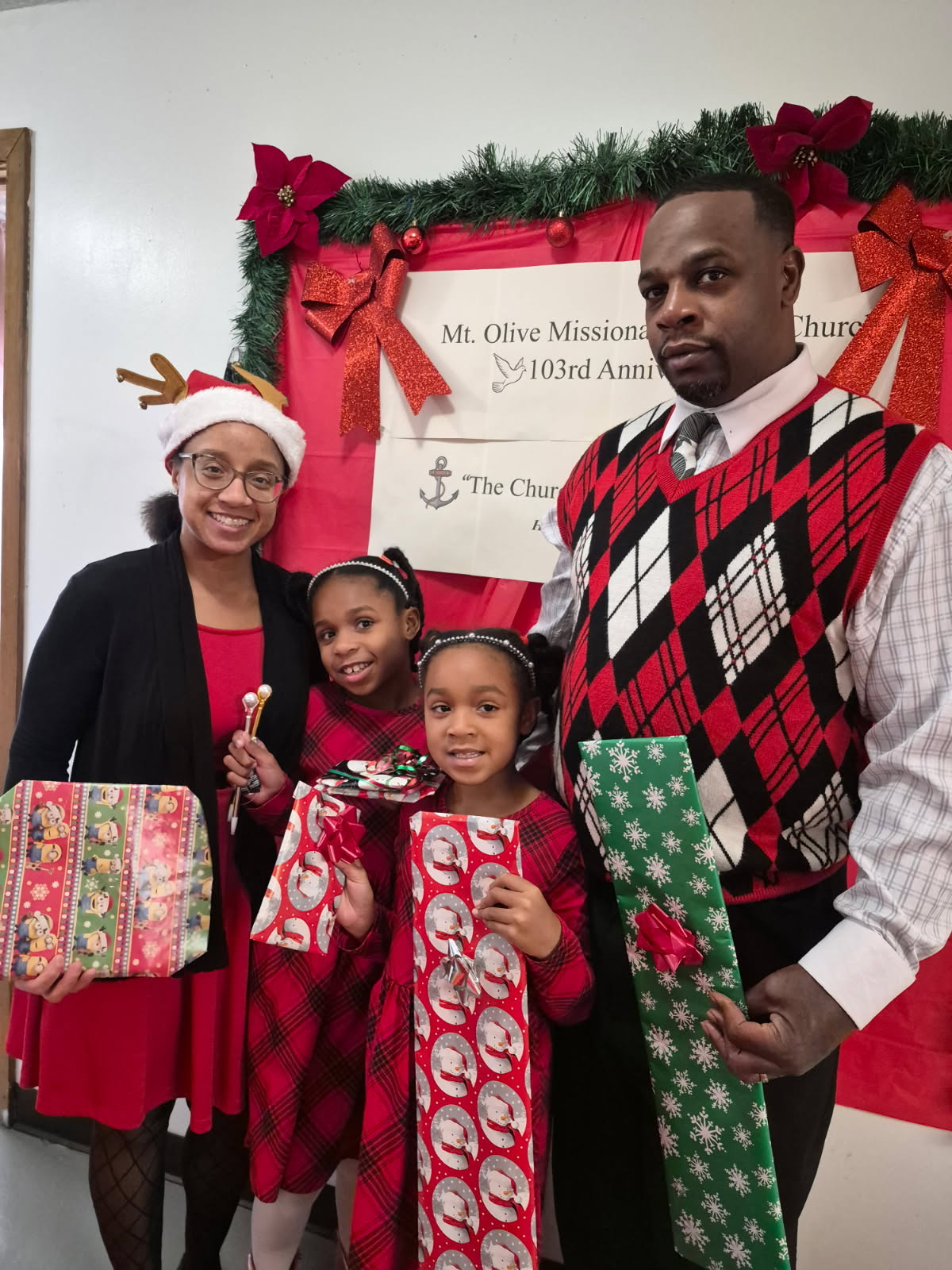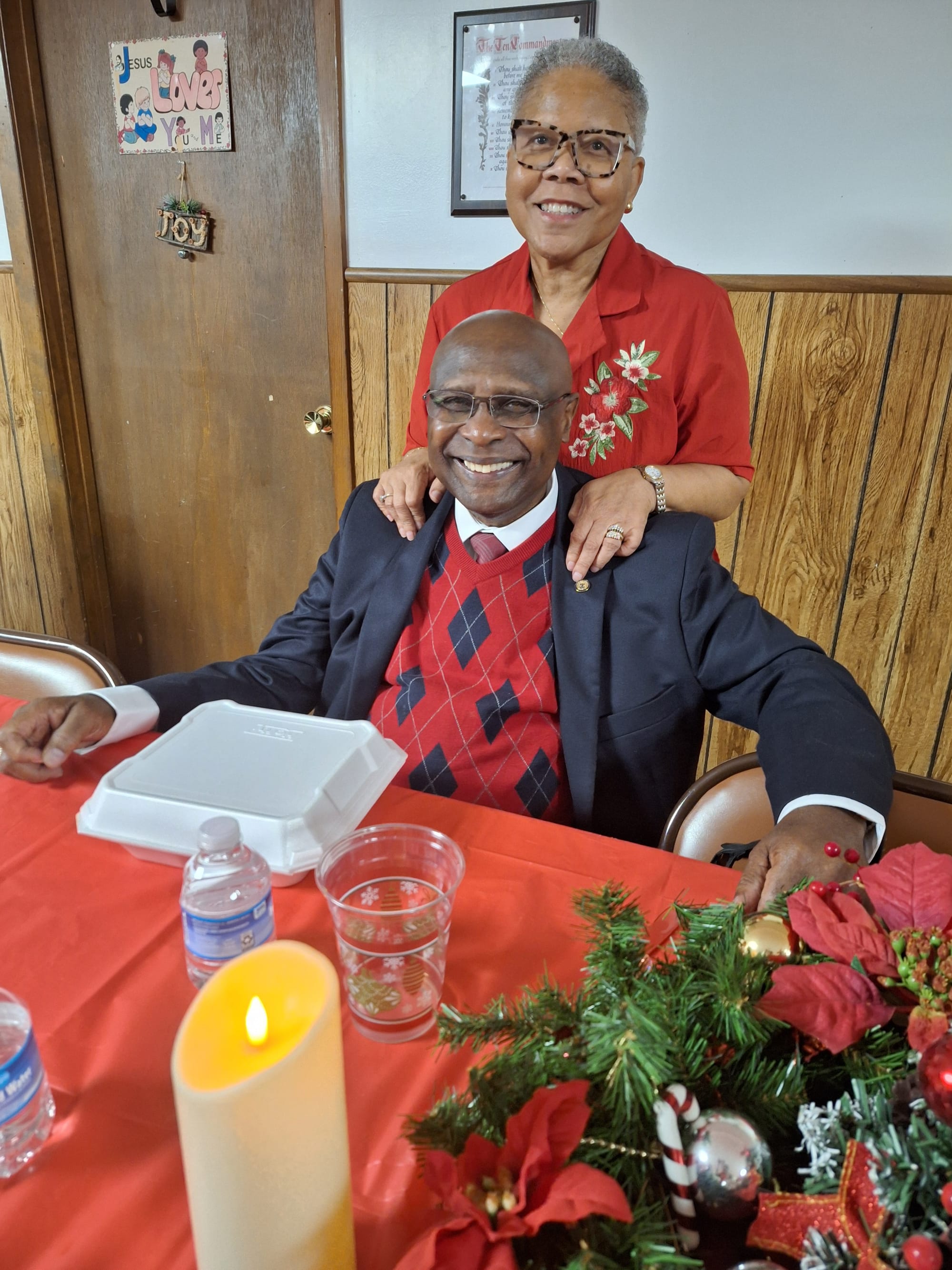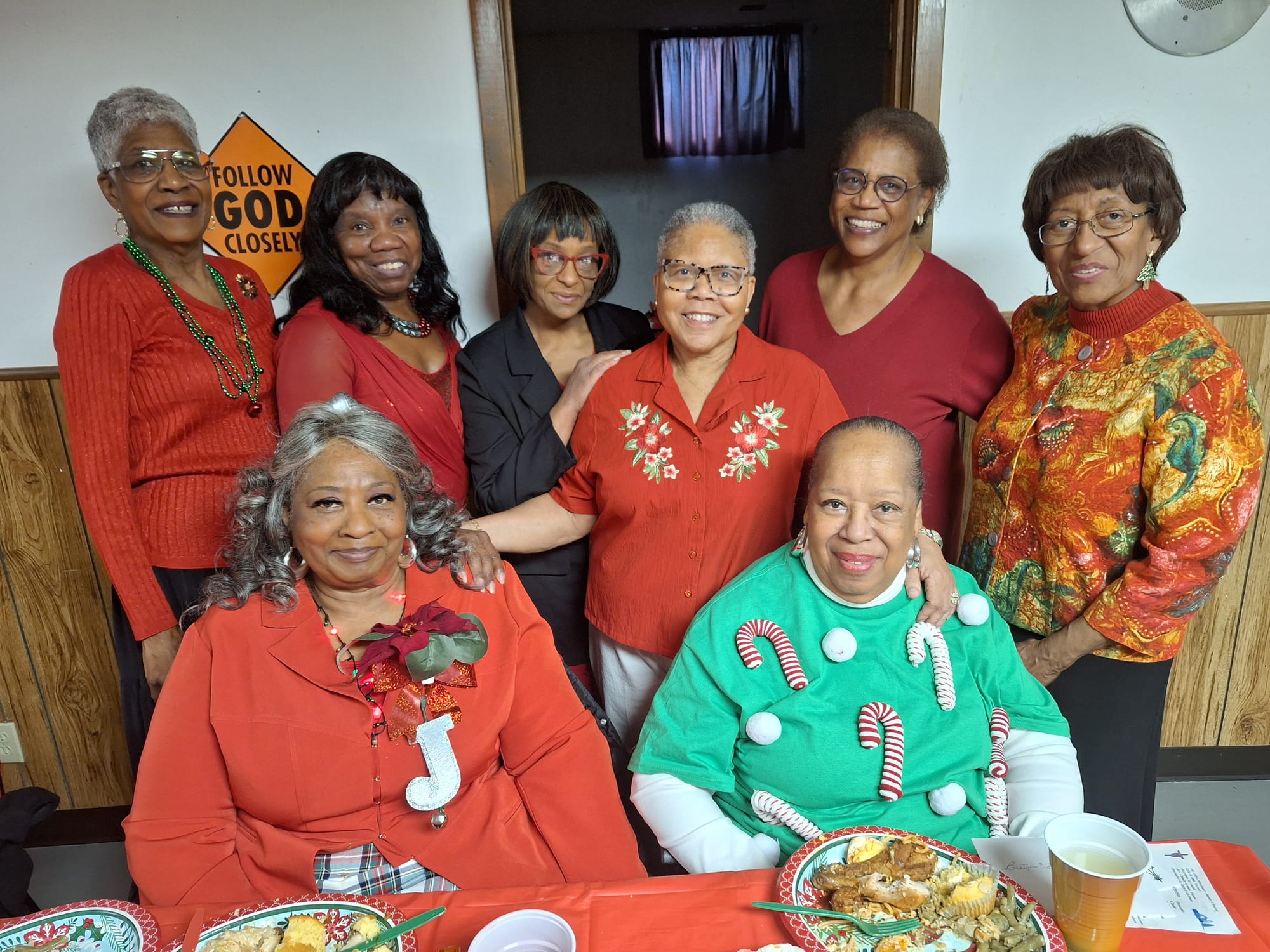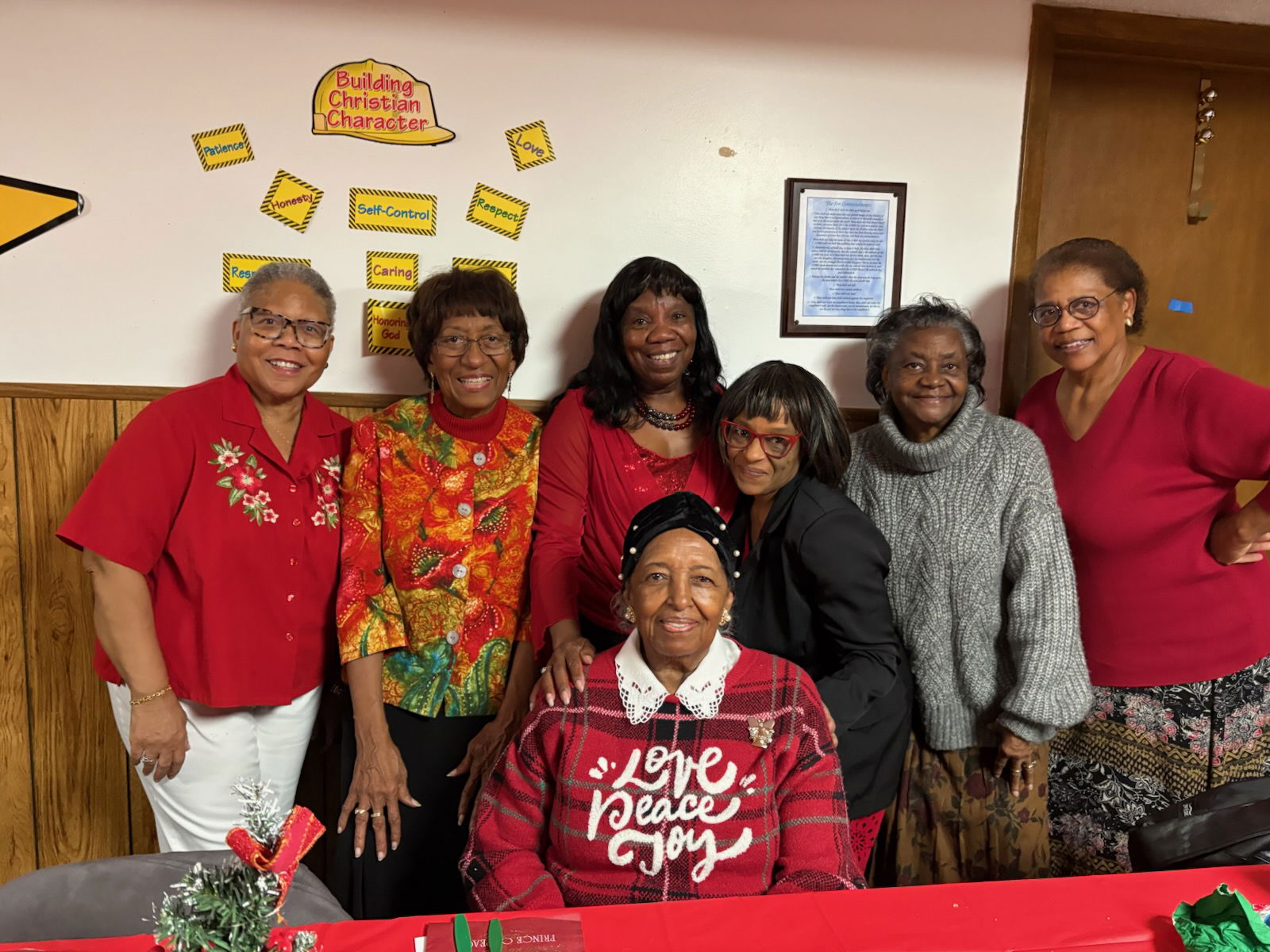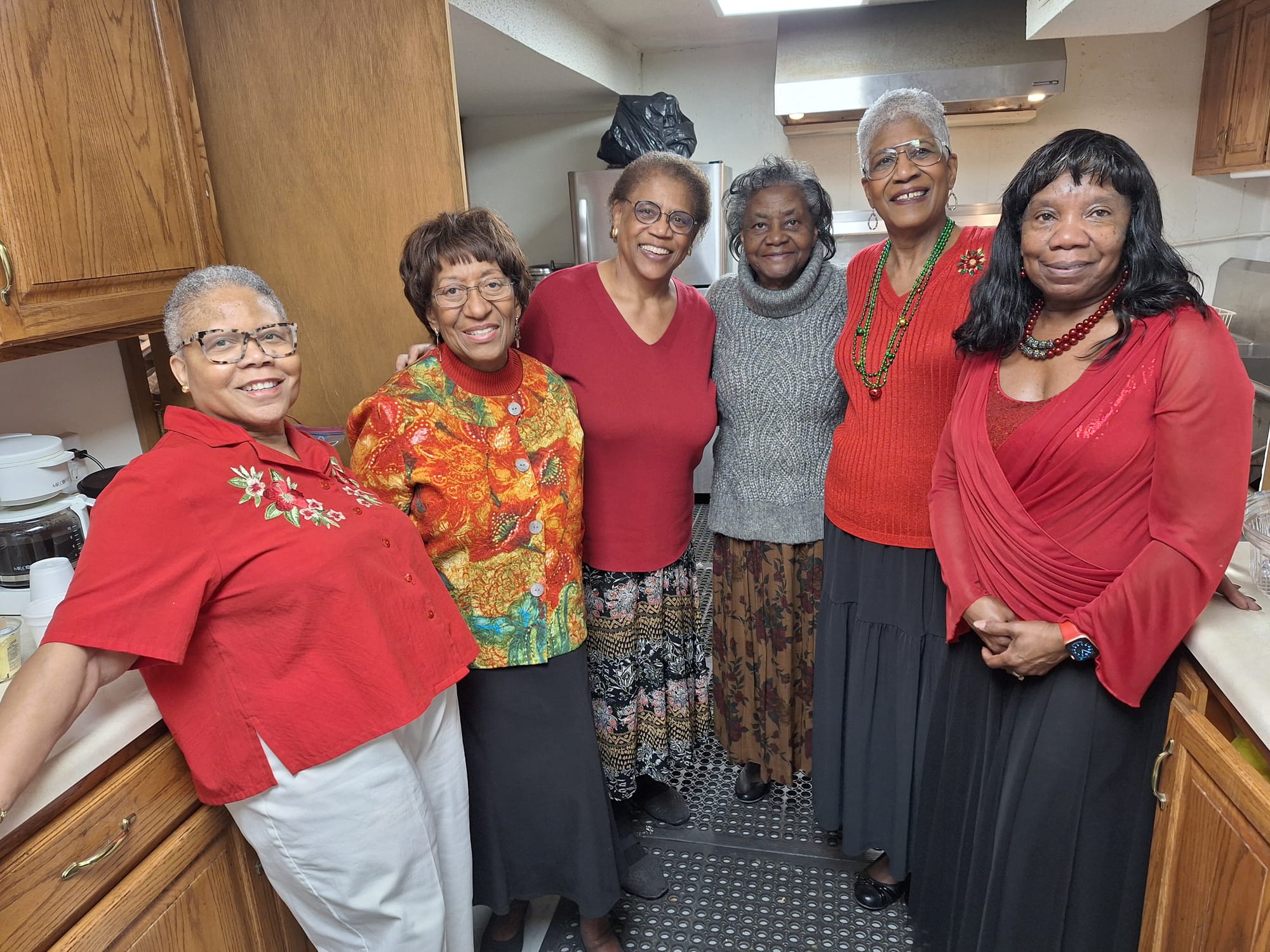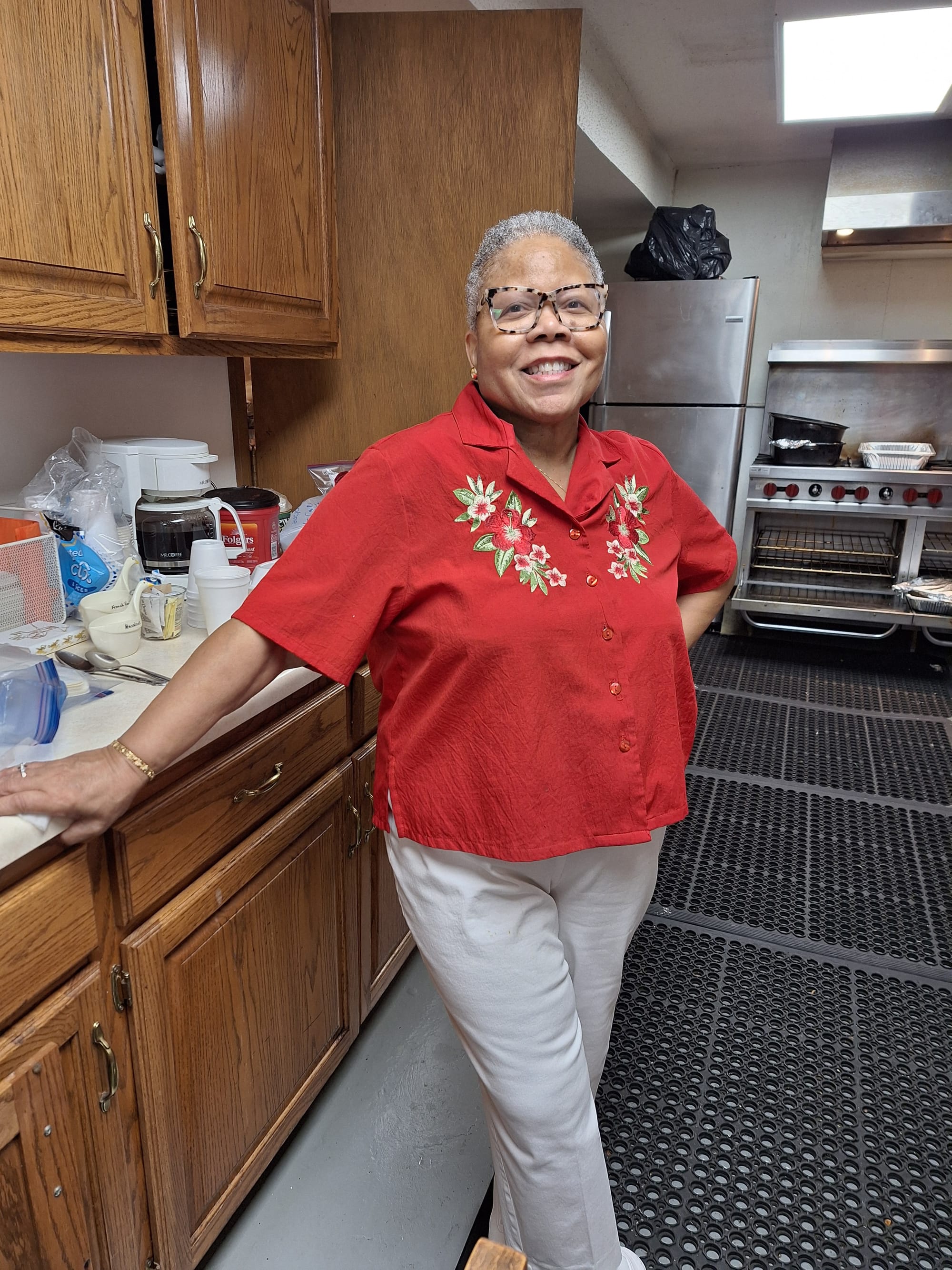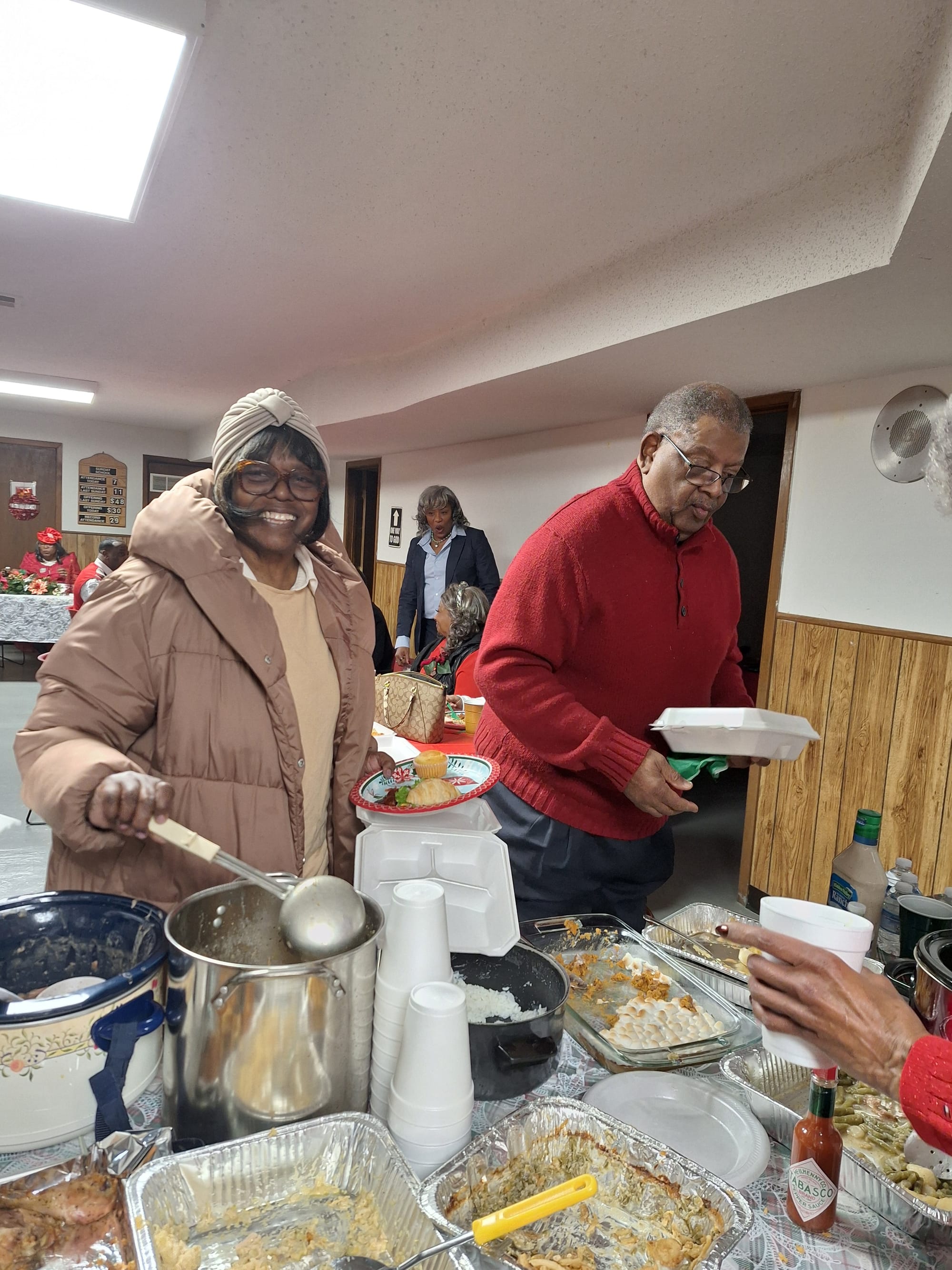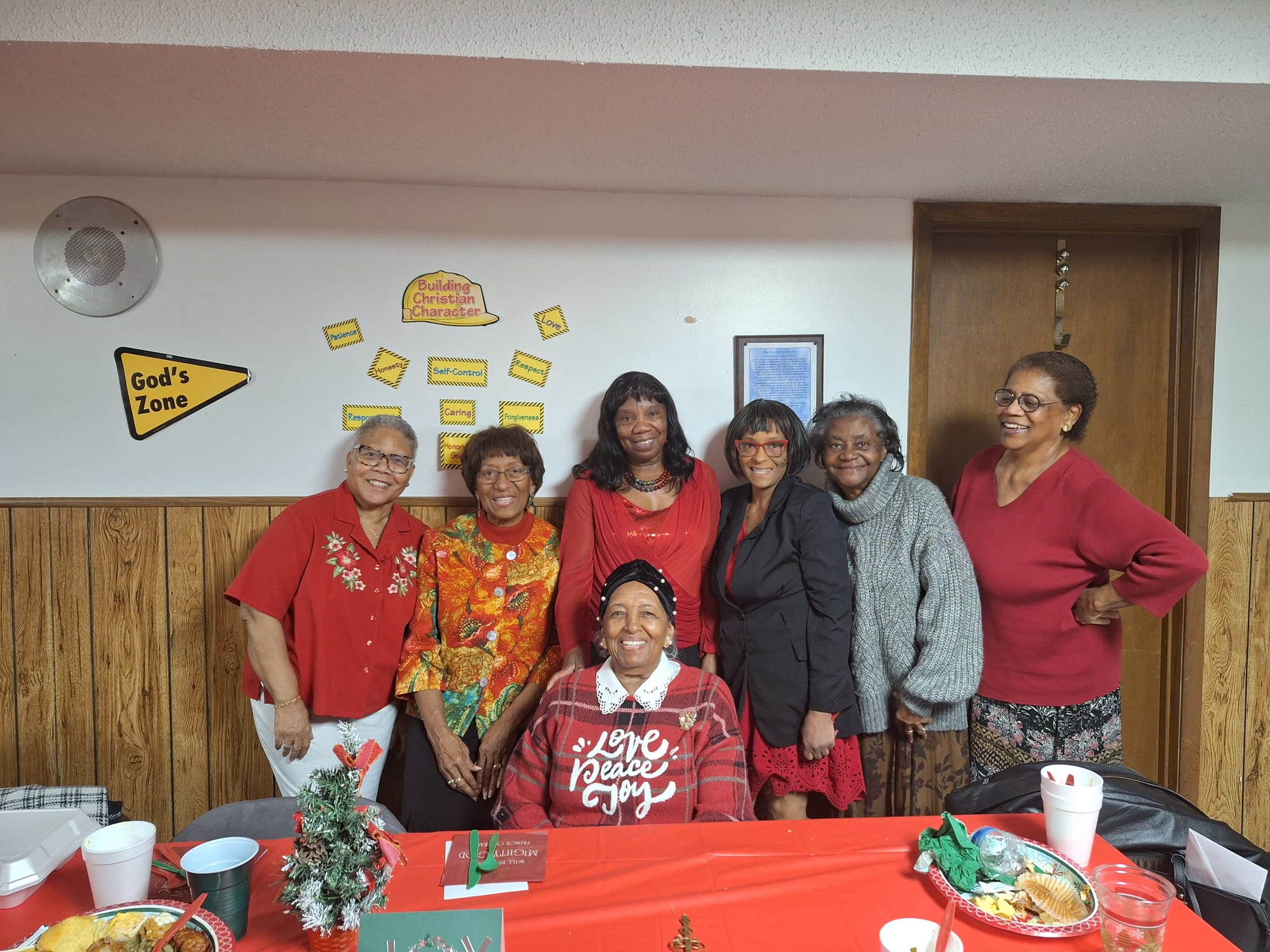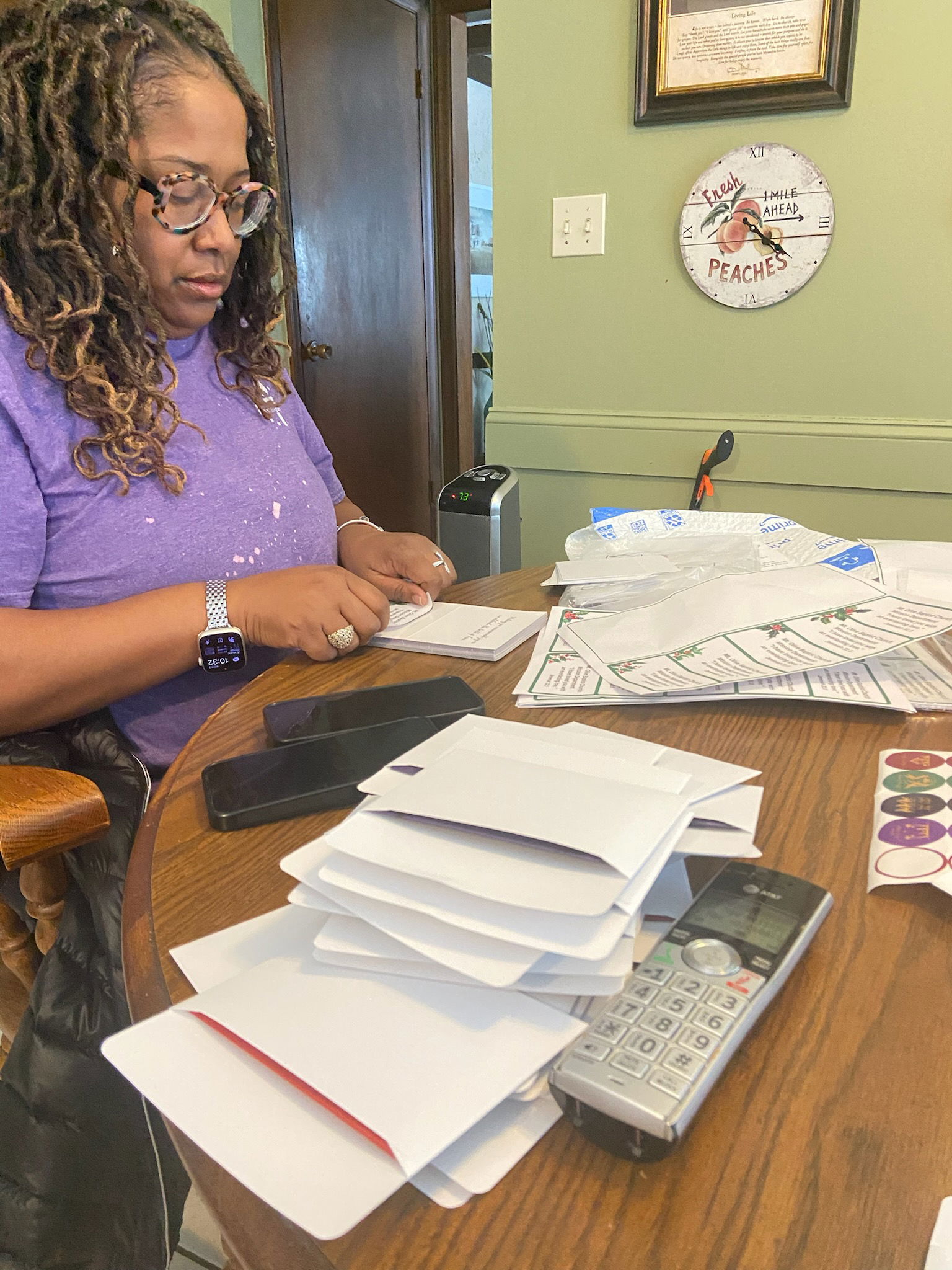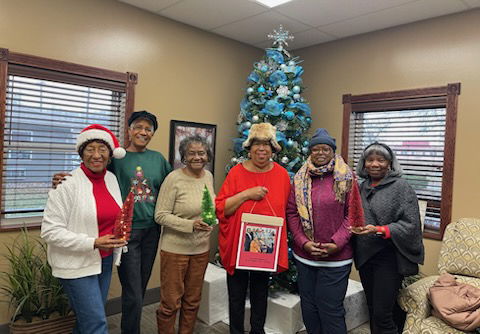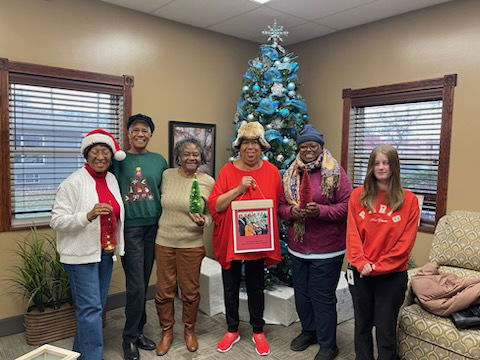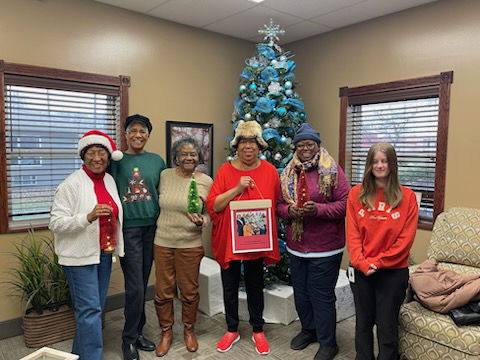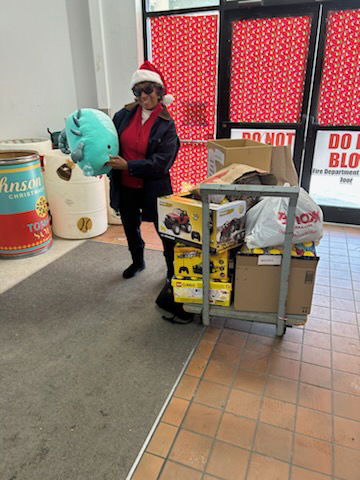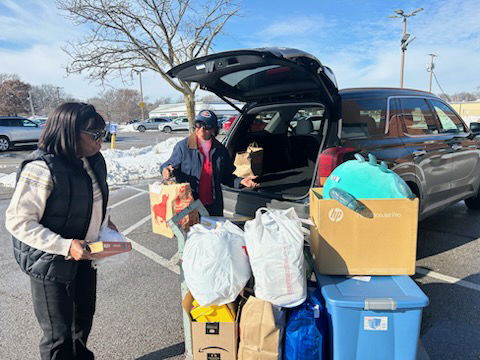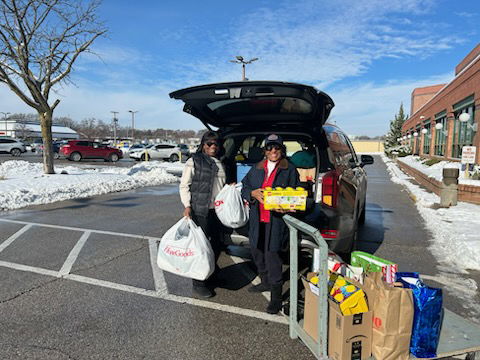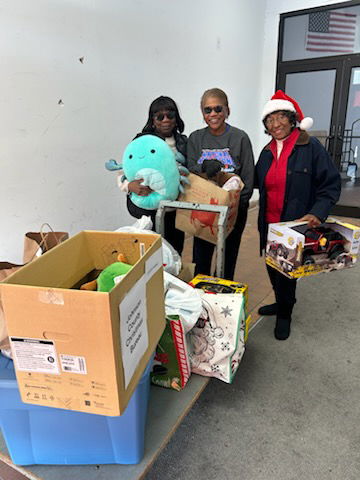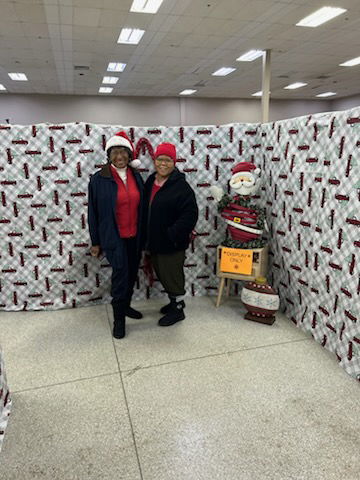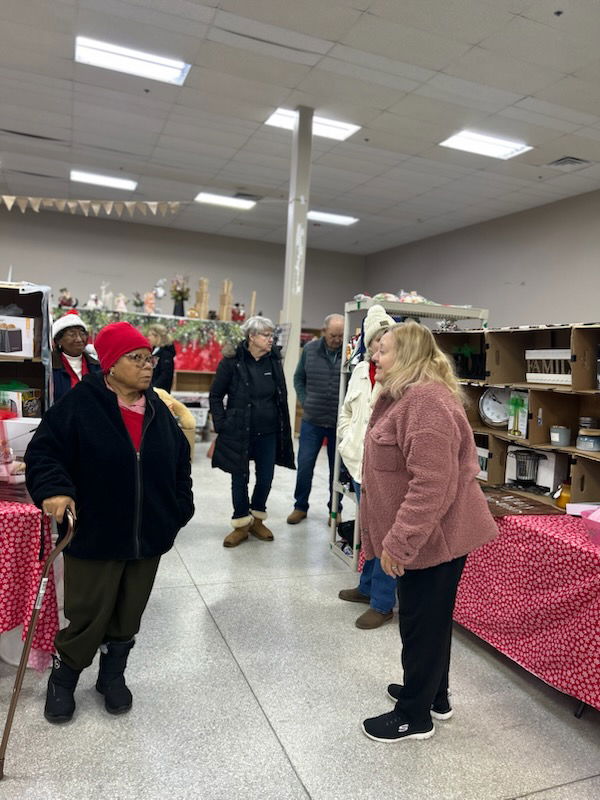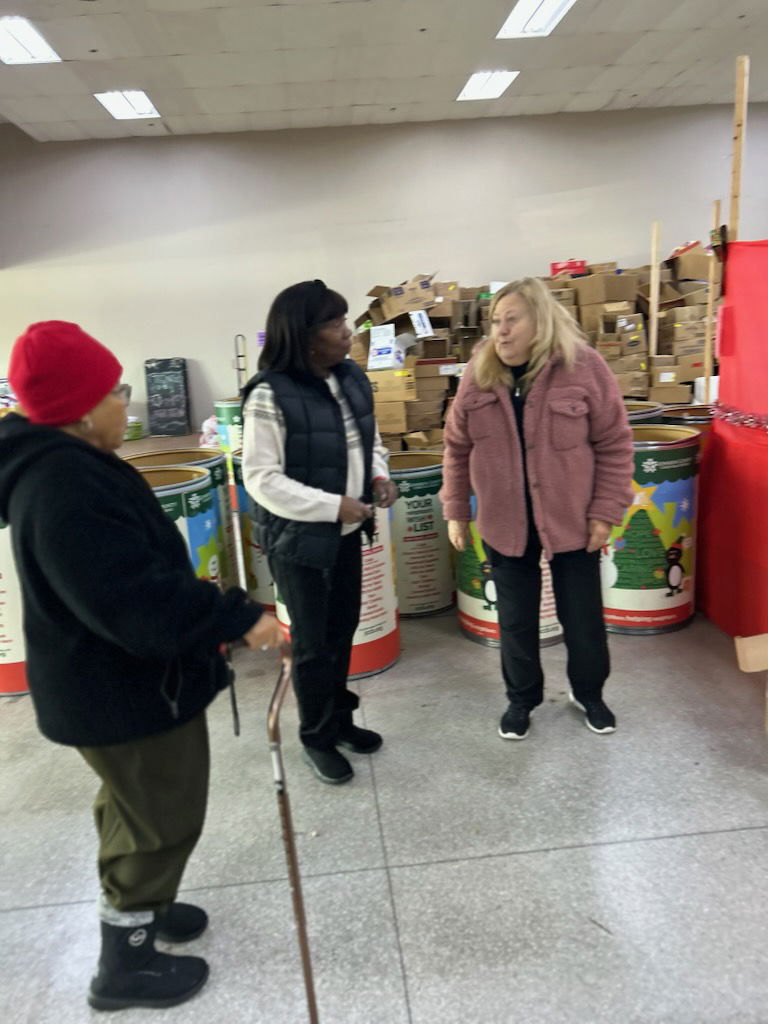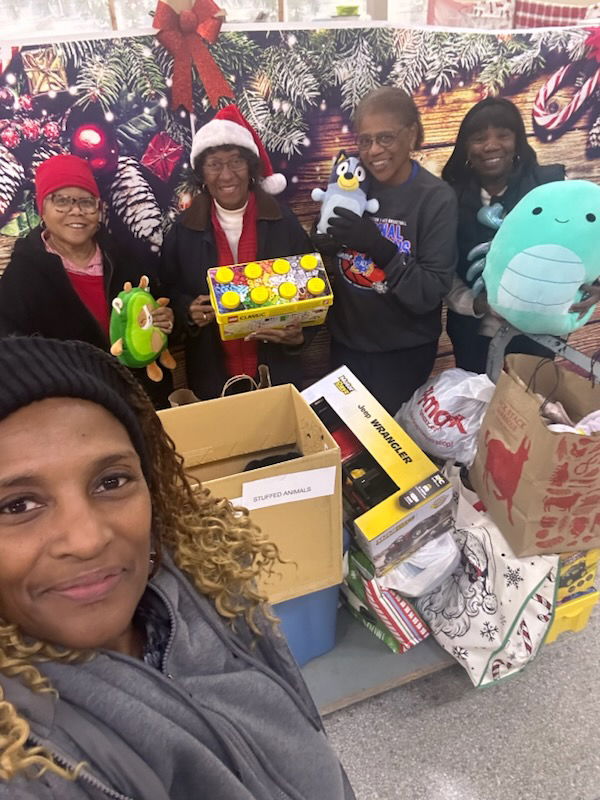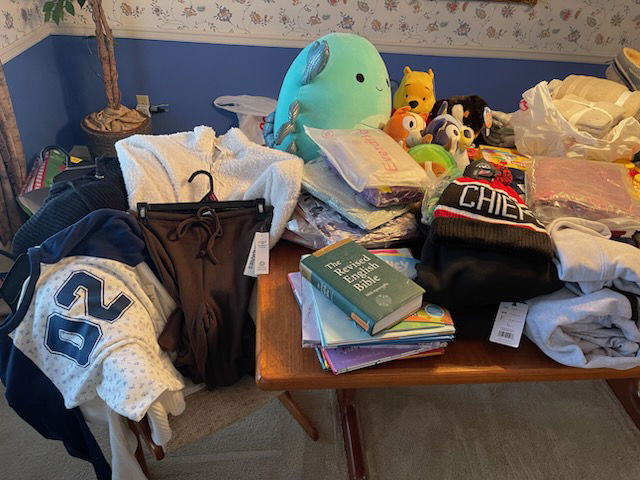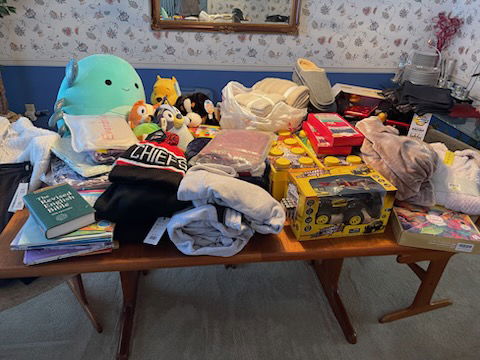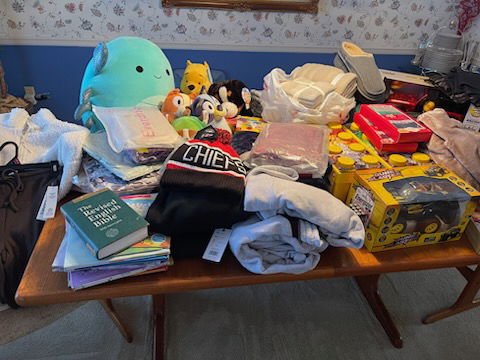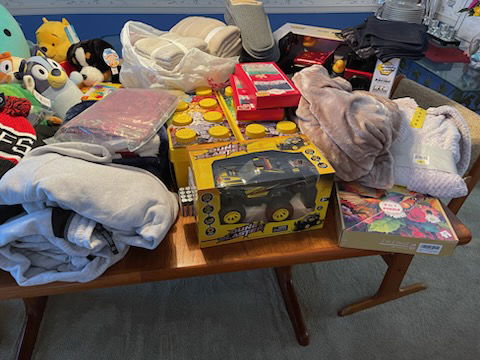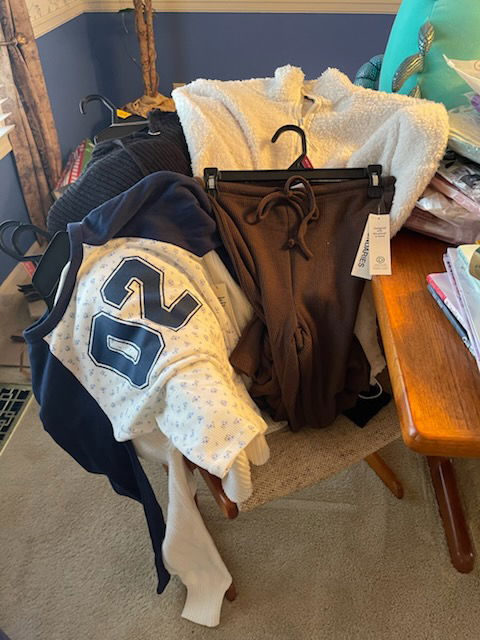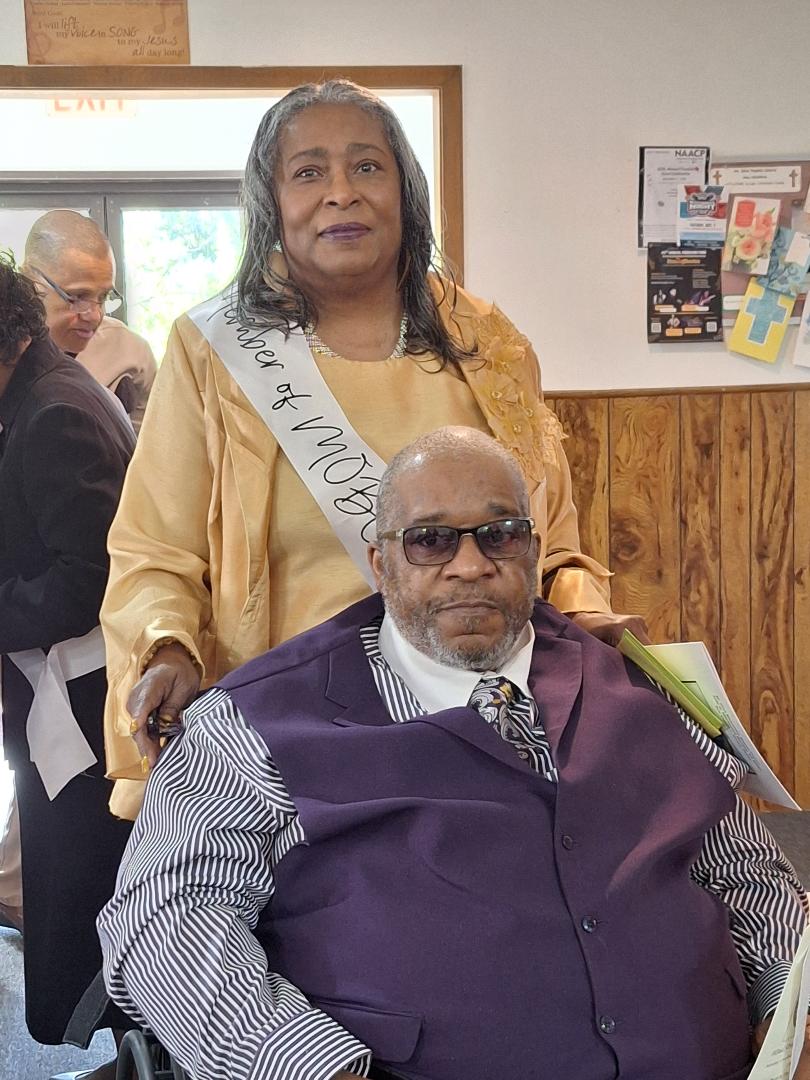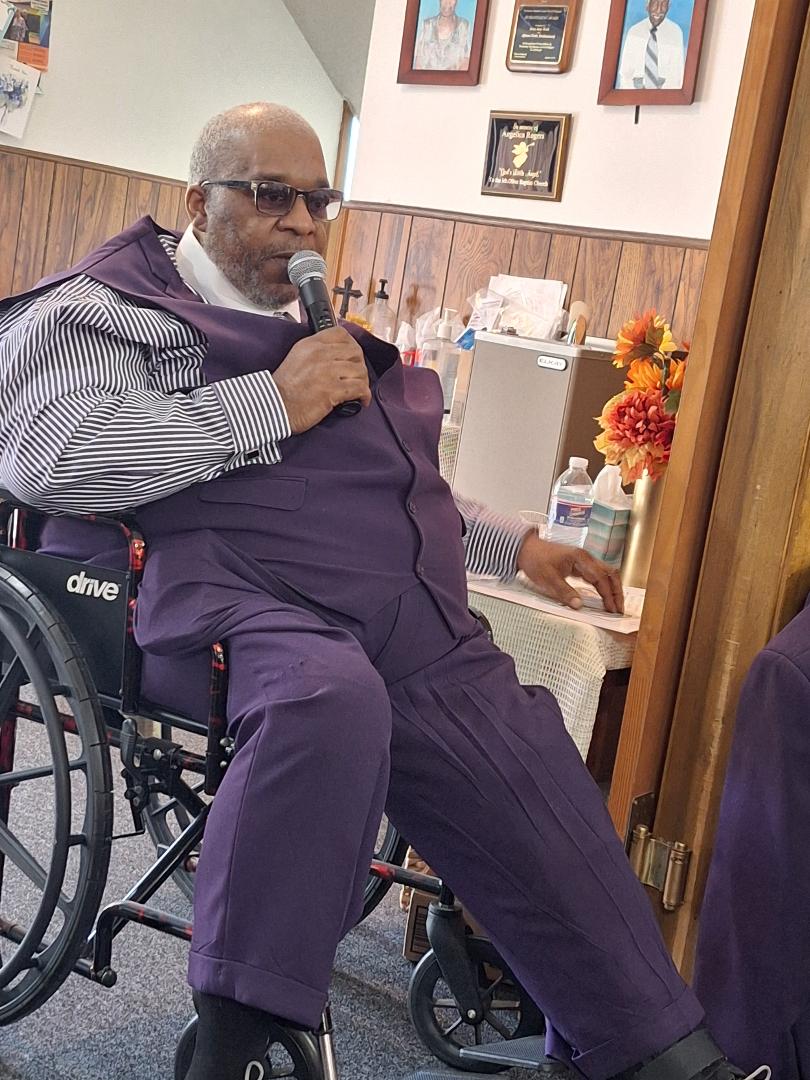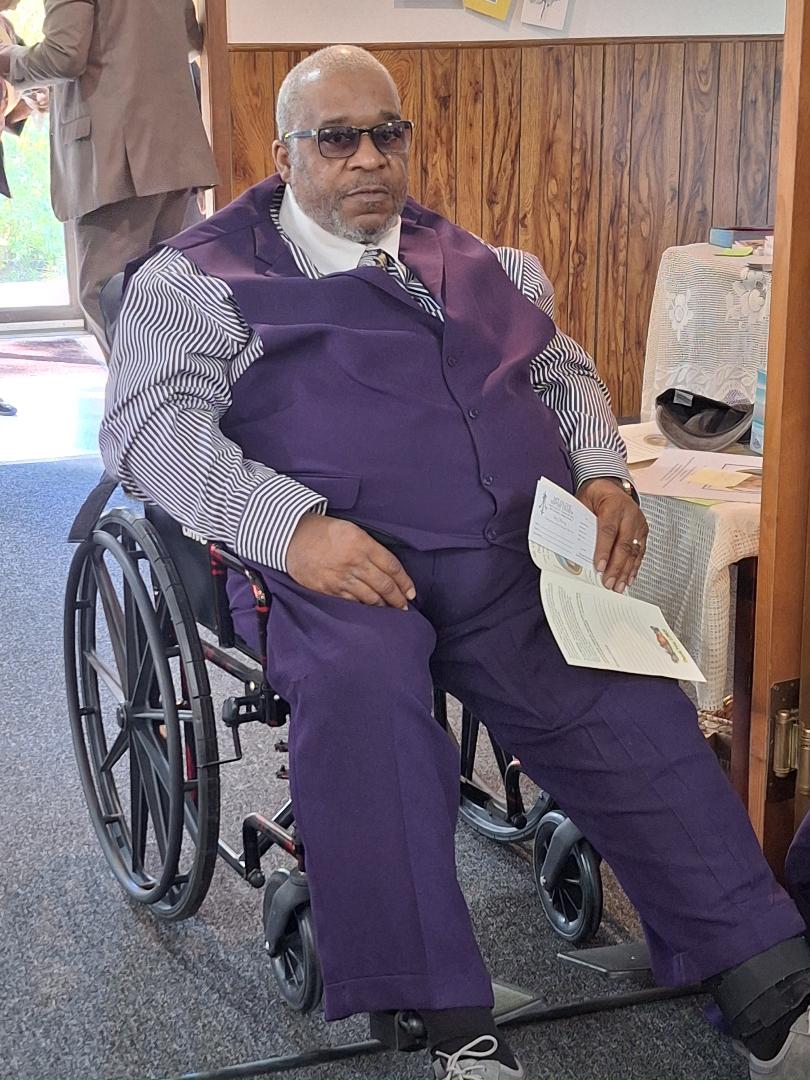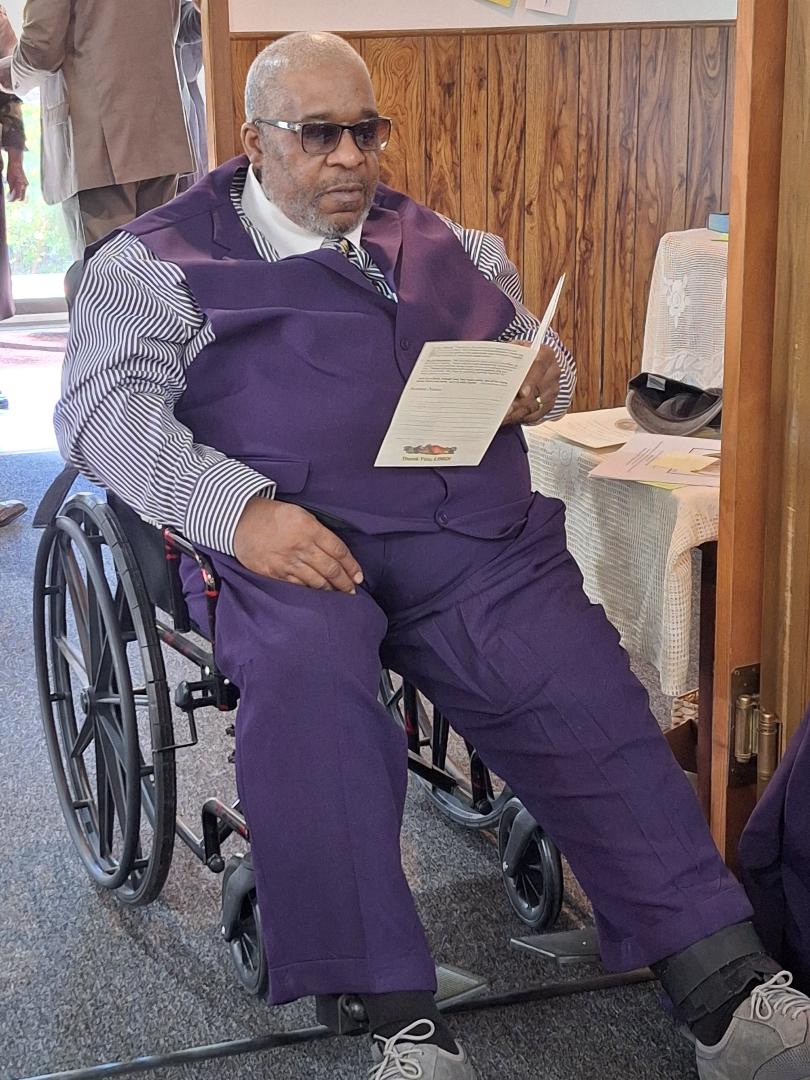WELCOME!
Come join us!
About Us
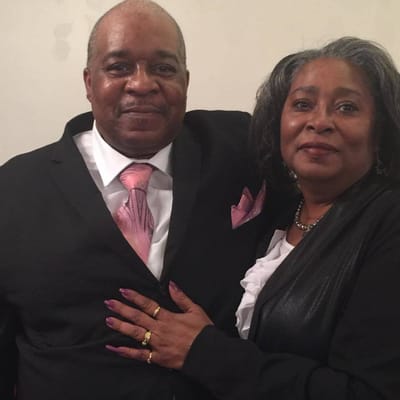
Join us
The church holds on-site worship services and virtual services. On-site service begins at 10:30 a.m. Virtual services on Facebook begin at 10:45 a.m. barring any technical difficulties. We look forward to meeting you. At present no other on-site events are scheduled.
- 9220 West 50th Terrace, Merriam, KS 66203, USA
- +1-913-432-0223
- mobjb@yahoo.com
- Sunday School - See News From The Pews Morning Worship - 10:30 am Bible Study - Virtual on Wed. @ 7 pm (See access info in News From the Pews section.) Adult Choir Rehearsal - 1st, 2nd & 4th Sat. @ 10 am Mission Meeting - Virtual on 2nd Tuesday at 6:30 p.m. (See access info in News From The Pews section.) Ushers Meeting - 3rd Sat. @ 10:30 am Laymen Meeting - 3rd Sat. @ 8 am Male Chorus Rehearsal - 3rd Sat. @ 10 am
Events
Sunday Service - 10:30 am - Church Sanctuary
Live on Facebook at 10:35 am
https://www.facebook.com/MOBC.MERRIAM/
https://www.facebook.com/claude.arnick
CHURCH CALENDAR FOR 2026
Deacons Day 2/15
Black History Service 2/22
Easter 4/5
Pastor & Wife Appreciation 4/12
Mother's Day 5/10
All Circles Day 5/17
Church Picnic 6/20
Father's Day 6/21
Friends & Family Day 7/19
Church Anniversary 10/18
Giving

Click on the link below to be directed to an online donation site.
https://tithe.ly/give?c=1586836
You may also use the Zelle mobile app to make direct deposits to Commerce Bank.
You may mail donations to the church:
9220 W. 50th Ter.
Merriam, KS 66203
Thank you for your offerings and contributions.
Prayer List

Pray For Every Need and Situation
Bro. Stacy, son of Pastor & Sister Arnick
Bro. Dennis Tooks, Jr. (Steven), nephew of Bro. Luther & Sis. Leola Tooks
Bro. Alfred Jones
Sis. Brenda Shivers
Sis. Camille Thompson
Bro. White
Mother Marzella McFarlin
Sis. Denise Ford
Sis. Wanda Wilkes
Sis. Judy Massenburg
Sis. Leola Tooks
Bro. Ron Woods
The Jones family
The Bradley and Cole Families
Webb Family in loss of Sis. Sharon Webb
Sylvia Willis, mother of Bro. Milton Springfield's wife Joy
Russell Dunn, Jr.
Jason Jones
Sis. NiNi Williams and Family
Woods Family
Clark Family
Tyson Family
Rev. Arnick and Sis. Arnick
Lott Family
Bianca Jackson
Rev. Arnick's Sister, Elaine Pettiford, rang "the bell" and is currently cancer free
Jennifer Gillespie
Brenda Gillespie
Pinkie Thompson
Morris/McFarlin families
Phillip Webb, son of Bro. Wayne and Raylene Webb
Mary Shivers and Gregory Shivers, who respectively are the ill sister and nephew of Bennie Shivers who is also ill
Anderson Family
Sis. Rubye Lenora, sister of Sis. Ozella Jones
Sis. LaSheyia Boyd
Sis. Jackie Ronnau
Deacon and Mother Rogers who lost their niece Karla
Bro. LaDarius LeDoux
Bunnie Bradley, sister of Sis. Ozella Jones
Comige and Springfield familes in passing of Sis. Shirley Comige
Tiffany Barnes
Sis. Tina Hayes and husband
Cecelia Cole's Mother
Dana Hines
Jaylan Jackson
Bolder Family
Telisa Foster
Wayman Scott III and Angela Scott, Sis. Shivers' brother and niece, respectively
Alica Gray, Sis. Shivers' friend, who is on the mend from blood clots in her lung and leg
Artis Campbell and Family
The Walker Family
The Jackson Family
Barnes Family
Sis. Mekka Ledoux and Family
The Mt. Olive church family
Nancy Suckey
Garlington Family
Sister Rosalee Grant
Carl Eastwick
Rev. Donald Black
Edna Willingham, sister of Jackie Willingham
Sis. Louvenia Webb
Shivers and Shavers families
Patience O'Hara
News From The Pews
SUNDAY SCHOOL LESSON
This Week's Sunday School Lesson at-A-Glance
Sunday, March 8, 2026 | Keeping Fit For the Sake of Others
ANNOUNCEMENTS
Installation of Officers - Installation of officers for 2026 will occur Sunday, March 8, 2026, during morning service.
Deacons' Day - Was held February 15, 2026 during morning service. Offering of $25 or whatever you choose is requested.
Black History Day - During morning service on February 22, 2026, Dr. Jamesia Durden Donato spoke on "Blacks In the Medical Profession" and also shared her personal experience. Pictures of the day are included in the Gallery. Thanks Bro. Massenburg for providing the pictures.
All Auxiliaries: Every auxiliary president should submit their 2026 annual budget request to Sis. Anita Lenoir no later than March 15. The Trustees will be preparing the church's annual budget in March and need to know:
1) each auxiliary's planned activities for the year and
2) your estimated budget need for each activity.
Please do a fair estimate and not automatically ask for the amount you received in prior years.
If you have any questions, please contact Sis. Lenoir.
TO THE MT. OLIVE MEMBERSHIP
Our Trustee Board is at a critical point trying to fulfill all of our responsibilities. Judy Massenburg who was confirmed by the church membership Sunday, March 1 joined the Trustee Board this year raising the membership to four. The Board continues to solicit members who desire to join them OR, alternatively, are willing to voluntarily assist as needed. The focus of those who volunteer will be to help complete current and/or future projects, which address the physical upkeep of the Church.
If you are interested in either becoming a Board Member or Volunteer, please communicate your interest by contacting any of the present Trustee Board members who are Charlie Jackson, Anita Lenoir, Judy Massenburg and Brenda Shivers. Thank you.
"CASUAL DRESS SUNDAYS"
In keeping with the times, Pastor Arnick is designating 4th Sundays as "Casual Dress Sundays". Feel free to dress in your casual attire. This may or may not include gear from your favorite pro, college, or high school team.
UPCOMING EVENTS
Monthly Mission Meeting is second Tuesday in each month at 6:30 p.m. via ZOOM. New books are located in the sanctuary.
Weekly bible study: Every Wednesday at 7 p.m. via ZOOM. See Pastor Arnick for a book.
Sis. LaNaya LeDoux has been gifted with great artistic ability. If you're interested in obtaining any of her art, you can talk to her on any Sunday after church. She can show you available pictures from her phone or she can paint any item you're interested in. She thanks everyone who donated and obtained some of her work. Some of her pictures appear in the gallery section of the website.
Please do not cover the air vents with books or any items. Our heating and cooling company has told us if we block the vents, it will burn up the blower motor on our furnace.
DIRECTORY UPDATE
Deacon Rogers at bernardrogers@sbcglobal.net and Deacon Lenoir at cclenoir7712@gmail.com.
WEBSITE DEADLINE
Sis. Anita Lenoir updates the website on Fridays. Send information you want included to her no later than noon on Friday. Email alenoir7712@yahoo.com or call 913-631-3944.
Videos

Sunday, March 1, 2026 - Rev. Claude Arnick
https://www.facebook.com/MOBC.MERRIAM/videos/1620750182290405
Sunday, February 22, 2026 - Dr. Jamesia Donata - Black History Month
https://www.facebook.com/MOBC.MERRIAM/videos/1229341488779404
Sunday, February 15, 2026 - Rev. Ardell Jones- Deacon Day
https://www.facebook.com/MOBC.MERRIAM/videos/1381849483699382
Sunday, February 8, 2026 - Rev. Claude Arnick
https://www.facebook.com/MOBC.MERRIAM/videos/1922693268337866
Sunday, February 1, 2026 - Rev. Claude Arnick
https://www.facebook.com/MOBC.MERRIAM/videos/1461962045629927
Sunday, January 25, 2026 - NO SERVICE DUE TO INCLEMENT WEATHER
Sunday, January 18, 2026 - Rev. Claude Arnick
https://www.facebook.com/MOBC.MERRIAM/videos/793335390434216
Sunday, January 11, 2026 - Rev. Eurvin Williams, Jr.
https://www.facebook.com/MOBC.MERRIAM/videos/738560425964504
Sunday, January 4, 2026 - Rev. Claude Arnick
https://www.facebook.com/MOBC.MERRIAM/videos/904865362226575
Sunday, December 28. 2025 - Rev. Claude Arnick
https://www.facebook.com/MOBC.MERRIAM/videos/847874084654294
Sunday, December 21, 2025 - Rev. Claude Arnick
https://www.facebook.com/MOBC.MERRIAM/videos/1371034847362830
Sunday, December 14, 2025 - Rev. Claude Arnick
https://www.facebook.com/MOBC.MERRIAM/videos/1530529577995142
Sunday, December 7, 2025 - Rev. Claude Arnick
https://www.facebook.com/MOBC.MERRIAM/videos/1236439698549782
Sunday, November 30, 2025 - Rev. Claude Arnick
https://www.facebook.com/MOBC.MERRIAM/videos/1888530658705887
Sunday, November 23, 2025 - Rev. Claude Arnick
https://www.facebook.com/MOBC.MERRIAM/videos/2062838261199666
Sunday, November 16, 2025 - Rev. Claude Arnick
https://www.facebook.com/MOBC.MERRIAM/videos/1464496844611115
Sunday, November 9, 2025 - Rev. Ardell Jones
https://www.facebook.com/MOBC.MERRIAM/videos/1192891376047977
Sunday, November 2, 2025 - Rev. Eurvin Williams
https://www.facebook.com/MOBC.MERRIAM/videos/1338229201046438
Sunday, October 26, 2025 - Rev. Ardell Jones
https://www.facebook.com/MOBC.MERRIAM/videos/1873898243547513
Sunday, October 19, 2025 - 103rd Church Anniversary - Rev. David Lee, Pastor, Guiding Star
https://www.facebook.com/MOBC.MERRIAM/videos/1348075976904327
Sunday, October 12, 2025 - Rev. Ervin Williams, Jr.
https://www.facebook.com/MOBC.MERRIAM/videos/1725512511483617
Sunday, October 5, 2025 - Rev. Ardell Jones
NO BROADCAST DUE TO EQUIPMENT ISSUE!
Sunday, September 28, 2025 - Rev. Claude Arnick
https://www.facebook.com/MOBC.MERRIAM/videos/1313542250451584
Sunday, September 21, 2025 - Ordination Service for Rev. Ardell Jones and Rev. Eurvin Williams, Jr.
https://www.facebook.com/MOBC.MERRIAM/videos/792275986524822
Sunday, September 21, 2025 - Rev. Claude Arnick
https://www.facebook.com/MOBC.MERRIAM/videos/1329516335531774
Sunday, September 7, 2025 - Rev. Claude Arnick
https://www.facebook.com/MOBC.MERRIAM/videos/1590356661948217
Sunday, August 31, 2025 - Rev. Claude Arnick
https://www.facebook.com/MOBC.MERRIAM/videos/1700622107372892
Sunday, August 24, 2025 - Rev. Claude Arnick
https://www.facebook.com/MOBC.MERRIAM/videos/3168065616704423
Sunday, August 17, 2025 - Rev. Ardell Jones - Guest Minister
https://www.facebook.com/MOBC.MERRIAM/videos/688192906965286
Sunday, August 10, 2025 - Rev. Eurvin Williams, Jr. - Guest Minister
https://www.facebook.com/MOBC.MERRIAM/videos/1098653788360283/
Sunday, August 3, 2025 - NO BROADCAST DUE TO TECHNICAL DIFFICULTIES
Sunday, July 27, 2025 - NO BROADCAST DUE TO TECHNICAL DIFFICULTIES
Sunday, July 20, 2025 - NO BROADCAST DUE TO TECHNICAL DIFFICULTIES
Sunday, July 13, 2025 - NO BROADCAST DUE TO TECHNICAL DIFFICULTIES
Rev. Claude Arnick - Sunday, July 6, 2025
https://www.facebook.com/MOBC.MERRIAM/videos/518558381283122
Rev. Ardell Jones - Sunday, June 29, 2025
https://www.facebook.com/MOBC.MERRIAM/videos/1234972541756961
Rev. Claude Arnick - Sunday, June 22, 2025
https://www.facebook.com/MOBC.MERRIAM/videos/552509627794951
Rev. Claude Arnick - Sunday, June 15, 2025
https://www.facebook.com/MOBC.MERRIAM/videos/695676540094508
Rev. Claude Arnick - Sunday, June 8, 2025
https://www.facebook.com/MOBC.MERRIAM/videos/1388917149085662
Rev. Claude Arnick - Sunday, June 1, 2025
https://www.facebook.com/MOBC.MERRIAM/videos/1216113700158564
Rev. Claude Arnick - Sunday, May 25, 2025
https://www.facebook.com/MOBC.MERRIAM/videos/908316198086924
Rev. Calvin Buford, Speaker - All Circles Day - Sunday, May 18, 2025
https://www.facebook.com/MOBC.MERRIAM/videos/680733014738471
Rev. Claude Arnick - Sunday, May 11, 2025
https://www.facebook.com/MOBC.MERRIAM/videos/24056579750606866
Rev. Claude Arnick - Sunday, May 4, 2025
https://www.facebook.com/MOBC.MERRIAM/videos/1378248990060757
Rev. Claude Arnick - Sunday, April 27, 2025
https://www.facebook.com/MOBC.MERRIAM/videos/1668169783832989/
Rev. Claude Arnick - Sunday, April 20, 2025 - HAPPY EASTER!
https://www.facebook.com/MOBC.MERRIAM/videos/1841036816735538
31st Pastor and Wife Appreciation Service - Sunday, April 13, 2025
Rev. Ricky Bragg, Pastor of Abundant Life Church
https://www.facebook.com/MOBC.MERRIAM/videos/645140704971438
Rev. Claude Arnick - Sunday, April 6, 2025
https://www.facebook.com/MOBC.MERRIAM/videos/1710596832825462/
Rev. Claude Arnick - Sunday, March 30, 2025
https://www.facebook.com/MOBC.MERRIAM/videos/572713975183856
Rev. Ardell Jones - Sunday, March 23, 2025
https://www.facebook.com/MOBC.MERRIAM/videos/1742749163255408
Rev. Claude Arnick - Sunday, March 16, 2025
https://www.facebook.com/MOBC.MERRIAM/videos/983449513416362
Rev. Claude Arnick - Sunday, March 9, 2025
https://www.facebook.com/MOBC.MERRIAM/videos/645373404904630
Rev. Claude Arnick - Sunday, March 2, 2025
https://www.facebook.com/MOBC.MERRIAM/videos/972317038422732
The Honorable Alvin Brooks - Sunday, February 23, 2025 - BLACK HISTORY DAY
https://www.facebook.com/MOBC.MERRIAM/videos/1299886037904239
Rev. Raymond Mabion - Sunday, February 16, 2025 - DEACONS' DAY
https://www.facebook.com/MOBC.MERRIAM/videos/1344101946489591
Rev. Claude Arnick - Sunday, February 9, 2025
https://www.facebook.com/MOBC.MERRIAM/videos/9706539612703712/
Rev. Claude Arnick - Sunday, February 2, 2025
https://www.facebook.com/MOBC.MERRIAM/videos/2975803119243562
Rev. Claude Arnick - Sunday, January 26, 2025
https://www.facebook.com/MOBC.MERRIAM/videos/2063830674037737/
Rev. Claude Arnick - Sunday, January 19, 2025
https://www.facebook.com/MOBC.MERRIAM/videos/3774181999512660
Rev. Claude Arnick - Sunday, January 12, 2025
https://www.facebook.com/MOBC.MERRIAM/videos/1270181114287241
Rev. Ardell Jones - December 29, 2024
https://www.facebook.com/MOBC.MERRIAM/videos/908274064832957/
Rev. Eurvin Williams, Jr. - December 22, 2024
https://www.facebook.com/MOBC.MERRIAM/videos/561969626596059/
Pastor Arnick - Sunday, December 15, 2024
https://www.facebook.com/MOBC.MERRIAM/videos/832390492247538/
Pastor Arnick - Sunday, December 8, 2024
https://www.facebook.com/MOBC.MERRIAM/videos/28587098474222722/
Pastor Arnick - Sunday, December 1, 2024
https://www.facebook.com/MOBC.MERRIAM/videos/1089853099345271/
Pastor Arnick - Sunday, November 24, 2024
https://www.facebook.com/MOBC.MERRIAM/videos/558843826903678/
Pastor Arnick - Sunday, November 17, 2024
https://www.facebook.com/MOBC.MERRIAM/videos/8747470921956460/
Pastor Arnick - Sunday, November 10, 2024
https://www.facebook.com/MOBC.MERRIAM/videos/1536802356962439/
Pastor Arnick - Sunday, November 3, 2024
https://www.facebook.com/MOBC.MERRIAM/videos/1459574524714992/
Pastor Arnick - Sunday, October 27, 2024
https://www.facebook.com/MOBC.MERRIAM/videos/928219515826541/
Sunday, October 20, 2024 - 102nd MOMBC Anniversary
Rev. Donald Slack, Pastor, 8th Street BC, KCK - Speaker
https://www.facebook.com/MOBC.MERRIAM/videos/1283974586315012/
Pastor Arnick - Sunday, October 13, 2024
https://www.facebook.com/MOBC.MERRIAM/videos/1191031055338431/
Pastor Arnick - Sunday, October 6, 2024
https://www.facebook.com/MOBC.MERRIAM/videos/889735709340705/
Pastor Arnick - Sunday, September 29, 2024
https://www.facebook.com/MOBC.MERRIAM/videos/1229515764916234/
Pastor Arnick - Sunday, September 22, 2024
https://www.facebook.com/MOBC.MERRIAM/videos/850610996814940/
Rev. Claude Arnick - Sunday, September 15, 2024
https://www.facebook.com/MOBC.MERRIAM/videos/3386204235018172/
Rev. Claude Arnick - Sunday, September 8, 2024
https://www.facebook.com/MOBC.MERRIAM/videos/888193956504163/
Rev. Claude Arnick - Sunday, September 1, 2024
https://www.facebook.com/MOBC.MERRIAM/videos/1886377805107790/
Rev. Ardell Jones, Guest Speaker - Sunday, August 25, 2024
https://www.facebook.com/MOBC.MERRIAM/videos/487000580712116/
Pastor Arnick - Sunday, August 18, 2024
https://www.facebook.com/MOBC.MERRIAM/videos/8366174323426830/
Pastor Arnick - Sunday, August 11, 2024
https://www.facebook.com/MOBC.MERRIAM/videos/345975368590289/
Pastor Arnick - Sunday, August 4, 2024
https://www.facebook.com/MOBC.MERRIAM/videos/824262043221471/
Rev. Ricky Lattimore, Guest Speaker - Sunday, July 28, 2024
https://www.facebook.com/MOBC.MERRIAM/videos/421427880240974/
Pastor Arnick - Sunday, July 14, 2024
https://www.facebook.com/MOBC.MERRIAM/videos/1560488958144409/
Pastor Arnick - Sunday, July 7, 2024
https://www.facebook.com/MOBC.MERRIAM/videos/861818039169089/
Pastor Arnick - Sunday, June 30, 2024
https://www.facebook.com/MOBC.MERRIAM/videos/433510609671867/
Rev. Calvin Buford, Guest Minister - Sunday, June 23, 2024
https://www.facebook.com/MOBC.MERRIAM/videos/1935342036932800/
Pastor Arnick - Sunday, June 16, 2024
https://www.facebook.com/MOBC.MERRIAM/videos/1175551786801613/
Pastor Arnick - Sunday, June 9, 2024
https://www.facebook.com/MOBC.MERRIAM/videos/687195160199744/
Pastor Arnick - Sunday, June 2, 2024
https://www.facebook.com/MOBC.MERRIAM/videos/1155730395618541/
Pastor Arnick - Sunday, May 26, 2024
https://www.facebook.com/MOBC.MERRIAM/videos/1605589953607687/
Rev. Eurvin Williams, Jr. - Guest Minister - All Circle Day - May 19, 2024
https://www.facebook.com/MOBC.MERRIAM/videos/810196751053896/
Pastor Arnick - Sunday, May12, 2024
https://www.facebook.com/MOBC.MERRIAM/videos/1446576609583278/
Pastor Arnick - Sunday, May 5, 2024
https://www.facebook.com/MOBC.MERRIAM/videos/1194372535263806/
Pastor Arnick - Sunday, April 28, 2024
https://www.facebook.com/MOBC.MERRIAM/videos/1843205559482429/
Pastor Arnick - Sunday, April 21, 2024
https://www.facebook.com/MOBC.MERRIAM/videos/3128072440661378/
Pastor & Sister Arnick 30th Appreciation Celebration - Sunday, April 14, 2024 - Rev. Micheal Black, Speaker
https://www.facebook.com/MOBC.MERRIAM/videos/385344874324960/
Pastor Arnick - Sunday, April 7, 2024
https://www.facebook.com/MOBC.MERRIAM/videos/626781419656184/
Pastor Arnick - Sunday, March 31, 2024
https://www.facebook.com/MOBC.MERRIAM/videos/731975115780757/
Pastor Arnick - Sunday, March 24, 2024
https://www.facebook.com/MOBC.MERRIAM/videos/355462674145048/
Pastor Arnick - Sunday, March 17, 2024
https://www.facebook.com/MOBC.MERRIAM/videos/1451638315480146/
Pastor Arnick - Sunday, March 10, 2024
https://www.facebook.com/MOBC.MERRIAM/videos/341197571656953/
Pastor Arnick - Sunday, March 3, 2024
https://www.facebook.com/MOBC.MERRIAM/videos/3933975400156159/
Black History Day - Pastor Arnick - Sunday, February 25, 2024
https://www.facebook.com/MOBC.MERRIAM/videos/1084825475899957/
Deacon Day - Guest Speaker, Rev. S. Willis Walker - February 18, 2024
https://www.facebook.com/MOBC.MERRIAM/videos/3486219118356303/
Pastor Arnick - Sunday, February 11, 2024
https://www.facebook.com/MOBC.MERRIAM/videos/1037323580691404/
Pastor Arnick - Sunday, February 4, 2024
https://www.facebook.com/MOBC.MERRIAM/videos/1567836607296526/
Pastor Arnick - Sunday, January 28, 2024
https://www.facebook.com/MOBC.MERRIAM/videos/687367186890253/
Pastor Arnick - Sunday, January 21, 2024
https://www.facebook.com/MOBC.MERRIAM/videos/3758682564404677/
January 14, 2024 - Church services cancelled due to inclement weather.
Pastor Arnick - Sunday, January 7, 2024
https://www.facebook.com/MOBC.MERRIAM/videos/1033682724415250
Pastor Arnick - Sunday, December 31, 2023
https://www.facebook.com/MOBC.MERRIAM/videos/652491923508448/
Pastor Arnick - Sunday, December 24, 2023
https://www.facebook.com/MOBC.MERRIAM/videos/334000169401485/
Rev. Daniel Childs, Guest Speaker - Sunday, December 17, 2023
https://www.facebook.com/MOBC.MERRIAM/videos/396444829568450/
Pastor Arnick - Sunday, December 10, 2023
https://www.facebook.com/MOBC.MERRIAM/videos/894604698506597/
Pastor Arnick - Sunday, December 3, 2023
https://www.facebook.com/MOBC.MERRIAM/videos/694666695989007/
Pastor Arnick - Sunday, November 26, 2023
https://www.facebook.com/MOBC.MERRIAM/videos/1830658537450723/
Pastor Arnick - Sunday, November 19, 2023
https://www.facebook.com/MOBC.MERRIAM/videos/655276030138482/
Pastor Arnick - Sunday, November 12, 2023
https://www.facebook.com/MOBC.MERRIAM/videos/994702254952166/
Pastor Arnick - Sunday, November 5, 2023
https://www.facebook.com/MOBC.MERRIAM/videos/1363679637919651
Pastor Arnick - Sunday, October 29, 2023
https://www.facebook.com/MOBC.MERRIAM/videos/6959539610733303/
Pastor Arnick - Sunday, October 22, 2023
https://www.facebook.com/MOBC.MERRIAM/videos/761764255711658/
101st Church Anniversary - Sunday, October 15, 2023 - Rev. Raymond Mabion, Sr., Guest Speaker
https://www.facebook.com/MOBC.MERRIAM/videos/852219139838815
Pastor Arnick - Sunday, October 8, 2023
https://www.facebook.com/MOBC.MERRIAM/videos/1313767205925134
Pastor Arnick - Sunday, October 1, 2023
https://www.facebook.com/MOBC.MERRIAM/videos/1375136826436393/
Pastor Arnick - Sunday, September 24, 2023
https://www.facebook.com/MOBC.MERRIAM/videos/1038710147154107/
Pastor Arnick - Sunday, September 17, 2023
https://www.facebook.com/MOBC.MERRIAM/videos/177180448737750/
Pastor Arnick - Sunday, September 10, 2023
https://www.facebook.com/MOBC.MERRIAM/videos/312951234645514/
Pastor Arnick - Sunday, September 3, 2023
https://www.facebook.com/MOBC.MERRIAM/videos/699230255380545/
Pastor Arnick - Sunday, August 27, 2023
https://www.facebook.com/MOBC.MERRIAM/videos/829727138704914/
Pastor Arnick - Sunday, August 20, 2023
https://www.facebook.com/MOBC.MERRIAM/videos/836158808065853/
Pastor Arnick - Sunday, August 13, 2023
https://www.facebook.com/MOBC.MERRIAM/videos/1008734073798768
Rev. Ardell Jones - Sunday, August 6, 2023
https://www.facebook.com/MOBC.MERRIAM/videos/827581985610949/
Pastor Arnick - Sunday, July 30, 2023
https://www.facebook.com/MOBC.MERRIAM/videos/975802950415101
Pastor Arnick - Sunday, July 23, 2023
https://www.facebook.com/MOBC.MERRIAM/videos/159488890489274
Pastor Arnick - Sunday, July 16, 2023
https://www.facebook.com/MOBC.MERRIAM/videos/814807320031773
Pastor Arnick - Sunday, July 9, 2023
https://www.facebook.com/MOBC.MERRIAM/videos/291370373449905/
Pastor Arnick - Sunday, July 2, 2023
https://www.facebook.com/MOBC.MERRIAM/videos/159488890489274
Sunday, June 25, 2023 - Guest speaker, Rev. Leon Brooks
https://www.facebook.com/MOBC.MERRIAM/videos/1884503688598157/
Pastor Arnick - Sunday, June 18, 2023 - Father's Day
https://www.facebook.com/MOBC.MERRIAM/videos/1204234653592932
Pastor Arnick - Sunday, June 11, 2023
https://www.facebook.com/MOBC.MERRIAM/videos/194196723588275/
Pastor Arnick - Sunday, June 4, 2023
https://www.facebook.com/MOBC.MERRIAM/videos/111328325300605/
Pastor Arnick - Sunday, May 28, 2023
https://www.facebook.com/MOBC.MERRIAM/videos/2169920333217371/
ALL CIRCLES DAY - Sunday, May 21, 2023 - Rev. Ray Mabion, Preacher
ttps://www.facebook.com/MOBC.MERRIAM/videos/775983860768068/
Pastor Arnick - Sunday, May 14, 2023 - MOTHER'S DAY
https://www.facebook.com/MOBC.MERRIAM/videos/631055238874492
Pastor Arnick - Sunday, May 7, 2023
https://www.facebook.com/MOBC.MERRIAM/videos/3412377535666850/
Pastor Arnick - Sunday, April 30, 2023
https://www.facebook.com/MOBC.MERRIAM/videos/225211956777064/
Pastor Arnick - Sunday, April 23, 2023
https://www.facebook.com/MOBC.MERRIAM/videos/1339159763312568/
Pastor and Sister Arnick 29th Appreciation Service - Sunday, April 16, 2023 - Rev. Daniel Childs, Preacher
https://www.facebook.com/MOBC.MERRIAM/videos/926461648553855/
Pastor Arnick - Easter - Sunday, April 9, 2023
https://www.facebook.com/MOBC.MERRIAM/videos/1592466244582108/
Pastor Arnick - Sunday, April 2, 2023
https://www.facebook.com/MOBC.MERRIAM/videos/1404925340321424/
Pastor Arnick - Sunday, March 26, 2023
https://www.facebook.com/MOBC.MERRIAM/videos/1248675779398624/
Pastor Arnick - Sunday, March 19, 2023
https://www.facebook.com/MOBC.MERRIAM/videos/736686481437532
Pastor Arnick - Sunday, March 12, 2023
https://www.facebook.com/MOBC.MERRIAM/videos/733277868268960/
Pastor Arnick - Sunday, March 5, 2023
https://www.facebook.com/MOBC.MERRIAM/videos/1389770008457342/
Black History - Sunday, February 26, 2023 - Anita Lenoir
https://www.facebook.com/MOBC.MERRIAM/videos/933438927696970
Black History - Sunday, February 19, 2023 - Major Kofi Akoto Appau, Speaker
https://www.facebook.com/MOBC.MERRIAM/videos/3564118423818004/
Pastor Arnick - Sunday, February 12, 2023
https://www.facebook.com/MOBC.MERRIAM/videos/565117855537288/
Pastor Arnick - Sunday, February 5, 2023
https://www.facebook.com/MOBC.MERRIAM/videos/854197582325866
Pastor Arnick - Sunday, January 29, 2023
https://www.facebook.com/MOBC.MERRIAM/videos/1819149998470175/
Pastor Arnick - Sunday, January 22, 2023
https://www.facebook.com/MOBC.MERRIAM/videos/675583617697132
Pastor Arnick - Sunday, January 15, 2023
https://www.facebook.com/MOBC.MERRIAM/videos/558694949514462/
Pastor Arnick - Sunday, January 8, 2023
https://www.facebook.com/MOBC.MERRIAM/videos/728994778576573
Pastor Arnick - Sunday, January 1, 2023
https://www.facebook.com/MOBC.MERRIAM/videos/1336110967220222
Pastor Arnick - Sunday, December 25, 2022
https://www.facebook.com/MOBC.MERRIAM/videos/723303432263714
Pastor Arnick - Sunday, December 18, 2022
https://www.facebook.com/MOBC.MERRIAM/videos/3232650256984404
Pastor Arnick - Sunday, December 11, 2022
https://www.facebook.com/MOBC.MERRIAM/videos/518152983600413
Pastor Arnick - Sunday, December 4, 2022
https://www.facebook.com/MOBC.MERRIAM/videos/703241434476172
https://www.facebook.com/MOBC.MERRIAM/videos/6305911529422271/
Pastor Arnick - Sunday, November 27, 2022
https://www.facebook.com/MOBC.MERRIAM/videos/5943158082381627
Rev. Ardell Jones - Sunday, November 20, 2022
https://www.facebook.com/MOBC.MERRIAM/videos/1483050558850326
Pastor Arnick - Sunday, November 13, 2022
https://www.facebook.com/MOBC.MERRIAM/videos/473099064919952
Pastor Arnick - Sunday, November 6, 2022
https://www.facebook.com/MOBC.MERRIAM/videos/911549453358233
Pastor Arnick - Sunday, October 30, 2022
https://www.facebook.com/MOBC.MERRIAM/videos/1514887742266354
Pastor Arnick - Sunday, October 23, 2022
https://www.facebook.com/MOBC.MERRIAM/videos/489935029860936
100th Church Anniversary - Sunday, October 16, 2022 - Rev. Desmond Lamb, Preacher
https://www.facebook.com/MOBC.MERRIAM/videos/1224198178148676
https://www.facebook.com/MOBC.MERRIAM/videos/5277000735758955/
Pastor Arnick - Sunday, October 9, 2022
https://www.facebook.com/MOBC.MERRIAM/videos/794929658410148
https://www.facebook.com/MOBC.MERRIAM/videos/815120429531034
Pastor Arnick - Sunday, October 2, 2022
https://www.facebook.com/MOBC.MERRIAM/videos/3440442236280766
Pastor Arnick - Sunday, September 25, 2022
https://www.facebook.com/MOBC.MERRIAM/videos/620234376271852
Pastor Arnick - Sunday, September 18, 2022
https://www.facebook.com/MOBC.MERRIAM/videos/622192609488462
Pastor Arnick - Sunday, September 11, 2022
https://www.facebook.com/MOBC.MERRIAM/videos/3212278525754477
Pastor Arnick - Sunday, September 4, 2022
https://www.facebook.com/MOBC.MERRIAM/videos/446730827405695/
Pastor Arnick - Sunday, August 28, 2022
https://www.facebook.com/MOBC.MERRIAM/videos/751353226165690/
Pastor Arnick - Sunday, August 21, 2022
https://www.facebook.com/MOBC.MERRIAM/videos/742093047244665
Pastor Arnick - August 14, 2022
https://www.facebook.com/MOBC.MERRIAM/videos/466112492046148
Pastor Arnick - Sunday, July 24, 2022
https://www.facebook.com/MOBC.MERRIAM/videos/788267625678395
Pastor Arnick - Sunday, July 17, 2022
https://www.facebook.com/MOBC.MERRIAM/videos/1208686736599619/
Pastor Arnick - Sunday, July 10, 2022
https://www.facebook.com/MOBC.MERRIAM/videos/349899317323742
Rev. Ardell Jones - Sunday, July 3, 2022
https://www.facebook.com/MOBC.MERRIAM/videos/743402500232533
Pastor Arnick - Sunday, June 26, 2022
https://www.facebook.com/MOBC.MERRIAM/videos/1746212939074867
Pastor Arnick - Sunday, June 19, 2022
https://www.facebook.com/MOBC.MERRIAM/videos/1423369244752999
Pastor Arnick - Sunday, June 12, 2022
https://www.facebook.com/MOBC.MERRIAM/videos/363654679202709
Pastor Arnick - Sunday, June 5, 2022
https://www.facebook.com/MOBC.MERRIAM/videos/565774548249163
Pastor Arnick - Sunday, May 29, 2022 - Mission Day
https://www.facebook.com/MOBC.MERRIAM/videos/579881137138462
Rev. Ray Mabion - Sunday, May 22, 2022 - All Circles Day
https://www.facebook.com/MOBC.MERRIAM/videos/373770721234513
Pastor Arnick - Sunday, May 15, 2022
https://www.facebook.com/MOBC.MERRIAM/videos/1615557955484913
Pastor Arnick - Sunday, May 8, 2022
https://www.facebook.com/MOBC.MERRIAM/videos/487398716407064
Pastor Arnick - Sunday, May 1, 2022
https://www.facebook.com/MOBC.MERRIAM/videos/733260127842921
Pastor Arnick - EASTER - Sunday, April 17, 2022
https://www.facebook.com/MOBC.MERRIAM/videos/1408683202900733
Pastor and Sister Arnick's Annual Appreciation Day - Sunday, April 10, 2022
Guest Speaker: Rev. Dr. L. Henderson Bell, Pastor Emeritus of Mt. Pleasant Baptist Church, Kansas City, MO
https://www.facebook.com/104424747884750/videos/2760401117588795
Pastor Arnick - Sunday, April 3, 2022
https://www.facebook.com/MOBC.MERRIAM/videos/708226087047150
Pastor Arnick - Sunday, March 27, 2022
https://www.facebook.com/104424747884750/videos/391750475738598
Pastor Arnick - Sunday, March 20, 2022
https://www.facebook.com/MOBC.MERRIAM/videos/3130950353814388
Pastor Arnick - Sunday, March 13, 2022
https://www.facebook.com/104424747884750/videos/3288708101453030
Pastor Arnick - Sunday, March 6, 2022
https://www.facebook.com/104424747884750/videos/384058726894272
Pastor Arnick - Sunday, February 27, 2022
https://www.facebook.com/104424747884750/videos/663017688382241
Pastor Arnick - Sunday, February 20, 2022
https://www.facebook.com/104424747884750/videos/478489110646559
Pastor Arnick - Sunday, February 13, 2022
https://www.facebook.com/MOBC.MERRIAM/videos/365988982009205
Pastor Arnick - Sunday, February 6, 2022
https://www.facebook.com/104424747884750/videos/765489101508628
Pastor Arnick - Sunday, January 30, 2022
https://www.facebook.com/MOBC.MERRIAM/videos/349210320144409/
Pastor Arnick - Sunday, January 23, 2022
https://www.facebook.com/MOBC.MERRIAM/videos/2425171237614109
Pastor Arnick - Sunday, January 16, 2022
https://www.facebook.com/MOBC.MERRIAM/videos/674972567009960
Pastor Arnick - Sunday, January 9, 2022
https://www.facebook.com/104424747884750/videos/1115569242318535
Pastor Arnick - Sunday, December 26, 2021
https://www.facebook.com/104424747884750/videos/1474380412934499
Pastor Arnick - Sunday, December 19, 2021
https://www.facebook.com/MOBC.MERRIAM/videos/4753044328118871
Rev. Ardell Jones, Guest Speaker - Sunday, December 12, 2021
https://www.facebook.com/MOBC.MERRIAM/videos/1618952928441524
Pastor Arnick - Sunday, December 5, 2021
https://www.facebook.com/MOBC.MERRIAM/videos/1020667068479499
Pastor Arnick - Sunday, November 28, 2021
"How To Experience the Power of God By Daring to Believe" (Mark 11:22-24; Genesis 17:1-13)
https://www.facebook.com/MOBC.MERRIAM/videos/3066920070187905
Pastor Arnick - Sunday, November 21, 2021
"Cultivating a Grateful Heart" (Luke 17:11-19) Part 2
https://www.facebook.com/MOBC.MERRIAM/videos/1058296131408599
Pastor Arnick - Sunday, November 14, 2021
"Cultivating A Grateful Heart" (Luke 17:11-19)
https://www.facebook.com/MOBC.MERRIAM/videos/4533865710026657
Pastor Arnick - Sunday, November 7, 2021
"The Precious Blood of Jesus" (Leviticus 17:10-13; Romans 5:8-14)
https://www.facebook.com/MOBC.MERRIAM/videos/299949705128974
Pastor Arnick - Sunday, October 31, 2021
"What Is Our Mission?" (Matthew 16:13-28)
https://www.facebook.com/MOBC.MERRIAM/videos/309326557571685
Pastor Arnick - Sunday, October 24, 2021
"When Jesus Shows Up" ( Mark 2:1-12)
https://www.facebook.com/MOBC.MERRIAM/videos/1339282943194747
99th Church Anniversary - Sunday, October 17, 2021 - Rev. Kevin Gabriel, Guest Speaker
"Give Me This Mountain: Looking Back to Go Forward" (Joshua 14:12)
https://www.facebook.com/MOBC.MERRIAM/videos/407848657494188
Pastor Arnick - Sunday, October 10, 2021
"A Place For Everyone and Everyone In Their Place" (I Corinthians 12:12-27)
https://www.facebook.com/MOBC.MERRIAM/videos/339882337494938
Pastor Arnick - Sunday, October 3, 2021
"The Righteous vs The Ungodly" (Psalm 1:1-6)
https://www.facebook.com/MOBC.MERRIAM/videos/374826374313771
Pastor Arnick - Sunday, September 26, 2021
"The Story of Two Men: The Saint and the Sinner; The Godly and Ungodly" (Psalm 1:1-6)
https://www.facebook.com/MOBC.MERRIAM/videos/581627499554270
Pastor Arnick - Sunday, September 19, 2021
"Running From God" (Jonah 1:1-7)
https://www.facebook.com/MOBC.MERRIAM/videos/293367925932694
Pastor Arnick - Sunday, September 12, 2021
"The Most Important Question That You Will Ever Ask" (Acts 16:23-31)
https://www.facebook.com/MOBC.MERRIAM/videos/220133410159882
Pastor Arnick - Sunday, September 5, 2021
"Jesus Facing Rejection" (Luke 4:17-30)
https://www.facebook.com/MOBC.MERRIAM/videos/599098111502154
Pastor Arnick - Sunday, August 29, 2021
"The Lost Coin: The Priority of Evangelism" (Luke 15:8-10)
https://www.facebook.com/MOBC.MERRIAM/videos/528201928485474
Pastor Arnick - Sunday, August 22, 2021
"Jeremiah Looking For Success" with subtitle "The True Meaning of True Success" (Jeremiah 1:4-10)
https://www.facebook.com/MOBC.MERRIAM/videos/936513630262554
Pastor Arnick - Sunday, August 15, 2021
"You Don't Have To Do Anything Wrong To Be Tested By God" (Job 3:1-11)
https://www.facebook.com/MOBC.MERRIAM/videos/548613959615552
Pastor Arnick - Sunday, August 8, 2021
"Lord, Teach Me How Not To Judge But To Discern" (Matthew 7:1-11)
https://www.facebook.com/MOBC.MERRIAM/videos/259815399019221/
Pastor Arnick - Sunday, August 1, 2021
"From A Maniac To A Missionary" (Mark 5:1-20)
https://www.facebook.com/MOBC.MERRIAM/videos/2178931645747609
Rev. Frank Ellison, Guest Preacher - Sunday, July 25, 2021
"There In Jericho" (Mark 10:46-52)
https://www.facebook.com/MOBC.MERRIAM/videos/351607499769826
Pastor Arnick, - Sunday, July 18, 2021
"There Is No Escape From God" (Psalm 139:1-14)
https://www.facebook.com/MOBC.MERRIAM/videos/2047744608709881/
Pastor Arnick - Sunday, July 11, 2021
"When The Joy Of The Lord Is Departed" (Psalm 137:1-4)
https://www.facebook.com/MOBC.MERRIAM/videos/809507219935818
Pastor Arnick - Sunday, July 4, 2021
"My Flag Is Still Standing And I Am Still Here" (2 Thessalonians 2:15-17)
https://www.facebook.com/MOBC.MERRIAM/videos/2866224953630304
Pastor Arnick - Sunday, June 27, 2021
"What Do You Do When You Don't Know What To Do?" (2 Chronicles 20:1-15)
https://www.facebook.com/MOBC.MERRIAM/videos/2912112692338410
Pastor Arnick - Sunday, June 20, 2021
https://www.facebook.com/MOBC.MERRIAM/videos/2723311457958822
"A Father's Love" ( Luke 15:11-32)
Pastor Arnick - Sunday, May 23, 2021
Technical Difficulties continued until June 20, 2021. We apologize for the inconvenience.
Sunday, May 16, 2021 - ALL CIRCLES DAY - Rev. Ray Mabion, Speaker
"Purpose, Calling, and Destiny" (Matthew 6:1-4)
https://www.facebook.com/MOBC.MERRIAM/videos/792059351699201
Pastor Arnick - Sunday, May 9, 2021 - Mother's Day
"The Influence Of A Godly Mother" (2 Timothy 1:1-7)
https://www.facebook.com/MOBC.MERRIAM/videos/737219616954142
Pastor Arnick - Sunday, May 2, 2021
"A New Beginning" (John 1:1-18)
https://www.facebook.com/MOBC.MERRIAM/videos/478355333484708
Pastor Arnick - Sunday, April 25, 2021
"Part 2 of The Great White Throne Judgment: Evidence, Defense, Verdict, and Sentence" (Revelation 20:11-15)
https://www.facebook.com/MOBC.MERRIAM/videos/497761134742879
Pastor Arnick - Sunday, April 18, 2021
"Part 1 of The Great White Throne Judgment: Where Will You Spend Eternity?" (Revelation 20:11-15)
https://www.facebook.com/claude.arnick/videos/3906724816109216
Pastor Arnick - 28th Pastoral Appreciation - Sunday, April 11, 2021
"Drive Out Sin" (Judges 2:1-17, 20-22)
https://www.facebook.com/MOBC.MERRIAM/videos/207077051215969
Pastor Arnick - EASTER - Sunday, April 4, 2021
"Because of Calvary" (Matthew 27:33-40)
https://www.facebook.com/MOBC.MERRIAM/videos/2988333618081721
Pastor Arnick - Sunday, March 28, 2021
"Palm Sunday" (Luke 19:28-41)
https://www.facebook.com/MOBC.MERRIAM/videos/466622484540358
Pastor Arnick - Sunday, March 21, 2021
"Building A Worshipful Life" (Isaiah 6:1-8)
https://www.facebook.com/MOBC.MERRIAM/videos/237038434876094
Pastor Arnick - Sunday, March 14, 2021
"Faith As A Way Of Life" (Hebrews 11:1-5)
https://www.facebook.com/MOBC.MERRIAM/videos/218919409968760
Pastor Arnick - Sunday, March 7, 2021
"What Must I Do To Be Saved?" (Acts 16:16-30)
https://www.facebook.com/MOBC.MERRIAM/videos/800758213864576
Bro. Morton Wayne Webb - Sunday, February 28, 2021 - Black History Presenter
"Give Me My Flowers" : "Whose Your Hero?"
https://www.facebook.com/104424747884750/videos/1039395009888307
https://www.facebook.com/MOBC.MERRIAM/videos/247500577082359
Pastor Arnick - Sunday, February 21, 2021
"If Only" (2 Samuel 23:13-17)
https://www.facebook.com/MOBC.MERRIAM/videos/1149439392182622
Sunday, February 14, 2021 - No Service Due To Inclement Weather
Pastor Arnick - Sunday, February 7, 2021
"I Must Tell Of The Goodness Of The Lord" (Psalm 27:7-14)
https://www.facebook.com/MOBC.MERRIAM/videos/743547186267350
Pastor Arnick - Sunday, January 31, 2021
"Being Light In Darkness" (Isaiah 42:1-9; Matthew 5:13-16)
https://www.facebook.com/MOBC.MERRIAM/videos/176208193876932
Pastor Arnick - Sunday, January 24, 2021
"Loving Others At Their Worst" (Hosea 1:1-3; 2:5-7)
https://www.facebook.com/MOBC.MERRIAM/videos/1949001231905223
Pastor Arnick - Sunday, January 17, 2021
"The Principles of Freedom" (Genesis 37:3-5, 23-28; I Cor. 8:8-13)
https://www.facebook.com/MOBC.MERRIAM/videos/163871318842067
Pastor Arnick - Sunday, January 10, 2021
"The Fear Of God In A World Gone Crazy" (Psalm 33:8-13, 33:18-22, 111:10)
https://www.facebook.com/MOBC.MERRIAM/videos/3658463284247149
Pastor Arnick - Sunday, January 3, 2021
"Making The Right Choices: How To Deal With Indecision" (Psalm 23:3)
https://www.facebook.com/MOBC.MERRIAM/videos/439249443912709
Pastor Arnick - Sunday, December 27, 2020
"Spiritual Growth and Development" (2 Peter 3:18)
https://www.facebook.com/MOBC.MERRIAM/videos/193478685792727
Pastor Arnick - Sunday, December 20, 2020
"The Miracle: The Meaning and The Message Of Christmas" (Matthew 1:18-25; Luke 1:30-35)
https://www.facebook.com/MOBC.MERRIAM/videos/1338954803110144
Pastor Arnick - Sunday, December 13, 2020
"Hope In The Coming King" (Isaiah 7:10-14; Matthew 1:21-23)
https://www.facebook.com/MOBC.MERRIAM/videos/182247916945995
Pastor Arnick - Sunday, December 6, 2020
"The Meaning Of Communion" (1 Corinthians 11:23-34)
https://www.facebook.com/MOBC.MERRIAM/videos/1525018774358231
Pastor Arnick - Sunday, November 29, 2020
"The Church: Our Mission and How To Fulfill It" (Matthew 28:19-20; Luke 24:44-49)
https://www.facebook.com/MOBC.MERRIAM/videos/412368539901048
Pastor Arnick - Sunday, November 22, 2020
"Jesus Christ: The Hope Of Glory" (Colossians 1:27)
https://www.facebook.com/MOBC.MERRIAM/videos/185214106537036
Pastor Arnick - Sunday, November 15, 2020
"Hatred Or Love?" (1 John 3:11-18)
https://www.facebook.com/104424747884750/videos/804756133652320
Pastor Arnick - Sunday, November 8, 2020
"How Should Christians Live In A Sinful Society?" (Titus 3:1-8)
https://www.facebook.com/MOBC.MERRIAM/videos/3357171570998290
Pastor Arnick - Sunday, November 1, 2020
"Steadfast Faith In God" (Daniel 3:15-18)
https://www.facebook.com/MOBC.MERRIAM/videos/645345759496518/
Pastor Arnick - Sunday, October 25, 2020
"An Invitation From Jesus" (Matt. 11:28-30)
https://www.facebook.com/MOBC.MERRIAM/videos/415047222854510
Pastor Arnick - Sunday, October 18, 2020 | 98th Church Anniversary
"Happy Birthday Dear Church" (Acts 1:8; 2:21-26)
https://www.facebook.com/MOBC.MERRIAM/videos/351236462651724
Pastor Arnick - Sunday, October 11, 2020
"The Miracle Of Pentecost" (Acts 2:1-8, 12-13)
https://www.facebook.com/MOBC.MERRIAM/videos/276965366738161/
Pastor Arnick - Sunday, October 4, 2020
"The Birth Of The Church" (Acts 1:6-15 with theme from verse 8)
https://www.facebook.com/MOBC.MERRIAM/videos/1085965605206978/
Baptist Faith
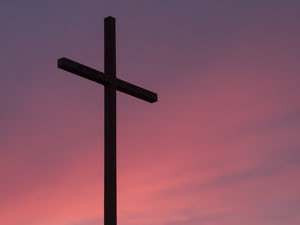
WHAT WE BELIEVE
I. The Scriptures.
We believe that the Holy Bible was written by men divinely inspired, and is a perfect treasure of heavenly instruction; that it has God for its author, salvation for its end, and truth without any mixture of error for its matter; that it reveals the principles by which God will judge us, and therefore is, and shall remain to the end of the world, the true center of Christian union, and the supreme standard by which all human conduct, creeds, and opinions shall be tried.
II. The True God.
We believe the Scriptures teach that there is one, and only one, living and true God, an infinite, intelligent Spirit, whose name is Jehovah, the Maker and Supreme Ruler of heaven and earth; inexpressibly glorious in holiness, and worthy of all possible honor confidence and love; that in the unity of the Godhead there are three persons, the Father, the Son, and the Holy Ghost; equal in every divine perfection, and executing distinct but harmonious offices in the great work of redemption.
III. The Fall of Man.
We believe the Scriptures teach that Man was created in holiness, under the law of his Maker; but by voluntary transgressions fell from that holy and happy state; in consequence of which all mankind are now sinners, not by constraint but choice; being by nature utterly void of that holiness required by the law of God, positively inclined to evil; and therefore under just condemnation to eternal ruin, without defense or excuse.
IV. The Way of Salvation.
We believe that the Scriptures teach that the salvation of sinners is wholly of grace; through the mediatorial offices of the Son of God; who by the appointment of the Father, freely took upon him our nature, yet without sin; honored the divine law by his personal obedience, and by his death made a full atonement for our sins; that having risen from the dead, he is now enthroned in heaven; and uniting in his wonderful person the tenderest sympathies with divine perfections, he is in every way qualified to be a suitable, a compassionate, and an all-sufficient Savior.
V. Justification.
We believe the Scriptures teach that the great Gospel blessing which Christ secures to such as believe in him is justification; that justification includes the pardon of sin, and the promise of eternal life on principles of righteousness; that it is bestowed, not in consideration of any works of righteousness which we have done, but solely through faith in the Redeemer’s blood; by virtue of which faith his perfect righteousness is freely imputed to us of God; that it brings us into a state of most blessed peace and favor with God, and secures every other blessing needful for time and eternity.
VI. The Freeness of Salvation.
We believe that the Scriptures teach that the blessings of salvation are made free to all by the Gospel; that it is the immediate duty of all to accept them by cordial, penitent and obedient faith; and that nothing prevents the salvation of the greatest sinner on earth, but his own determined depravity and voluntary rejection of the Gospel; which rejection involves him in an aggravated condemnation.
VII. Regeneration.
We believe that the Scriptures teach that in order to be saved, sinners must be regenerated, or born again; that regeneration consists in giving a holy disposition to the mind that it is effected in a manner above our comprehension by the power of the Holy Spirit in connection with divine truth, so as to secure our voluntary obedience to the Gospel; and that its proper evidence appears in the holy fruits of repentance and faith, and newness of life.
VIII. Repentance and Faith.
We believe the Scriptures teach that repentance and faith are sacred duties, and also inseparable graces, wrought in our souls by the regenerating Spirit of God; whereby being deeply convinced of our guilt, danger and helplessness and of the way of salvation by Christ, we turn to God with unfeigned contrition, confession, and supplication for mercy; at the same time heartily receiving the Lord Jesus Christ as our prophet, priest and king, and relying on him alone as the only and all-sufficient Savior.
IX. God’s Purpose of Grace.
We believe the Scriptures teach that election is the eternal purpose of God, according to which he graciously regenerates, sanctifies and saves sinners; that being perfectly consistent with the free agency of man, it comprehends all the means in connection with the end; that it is a most glorious display of God’s sovereign goodness, being infinitely free, wise, holy and unchangeable; that it utterly excludes boasting and promotes humility, love, prayer, praise, trust in God, and active imitation of his free mercy; that it encourages the use of means in the highest degree; that it may be ascertained by its effects in all who truly believe the Gospel; that it is the foundation of Christian assurance; and that to ascertain it with regard to ourselves demands and deserves the utmost diligence.
X. Sanctification.
We believe the Scriptures teach that Sanctification is the process by which, according to the will of God, we are made partakers of his holiness; that it is a progressive work; that it is begun in regeneration; and that it is carried on in the hearts of believers by the presence and power of the Holy Spirit, the Sealer and Comforter, in the continual use of the appointed means especially the word of God, self-examination, self-denial, watchfulness, and prayer.
XI. Perseverance of the Saints.
We believe the Scriptures teach that such only are real believers as endure to the end; that their persevering attachment to Christ is the grand mark which distinguishes them from superficial professors; that a special Providence watches over their welfare; and they are kept by the power of God through faith unto salvation.
XII. The Law and Gospel.
We believe the Scriptures teach that the Law of God is the eternal and unchangeable rule of his moral government; that it is holy, just and good; and that the inability which the Scriptures ascribe to fallen men to fulfill its precepts, arise entirely from their love of sin; to deliver them from which, and to restore them through a Mediator to unfeigned obedience to the holy Law, is one great end of the Gospel, and of the Means of Grace connected with the establishment of the visible church.
XIII. A Gospel Church.
We believe the Scriptures teach that a visible church of Christ is a congregation of baptized believers, associated by covenant in the faith and fellowship of the Gospel; observing the ordinances of Christ; governed by his laws; and exercising the gifts, rights, and privileges invested in them by His Word; that its only scriptural officers are Bishops or Pastors, and Deacons whose Qualifications, claims and duties are defined in the Epistles to Timothy and Titus.
XIV. Baptism and the Lord’s Supper.
We believe the Scriptures teach that Christian baptism is the immersion in water of a believer, into the name of the Father, and Son, and Holy Ghost; to show forth in a solemn and beautiful emblem, our faith in the crucified, buried, and risen Savior, with its effect, in our death to sin and resurrection to a new life; that it is prerequisite to the privileges of a church relation; and to the Lord’s Supper, in which the members of the church, by the sacred use of bread and wine, are to commemorate together the dying love of Christ; preceded always by solemn self-examination.
XV. The Christian Sabbath.
We believe the Scriptures teach that the first day of the week is the Lord’s Day, or Christian Sabbath, and is to be kept sacred to religious purposes, by abstaining from all secular labor and sinful recreations, by the devout observance of all the means of grace, both private and public, and by preparation for that rest that remaineth for the people of God.
XVI. Civil Government.
We believe the Scriptures teach that civil government is of divine appointment, for the interest and good order of human society; and that magistrates are to be prayed for, conscientiously honored and obeyed; except only in things opposed to the will of our Lord Jesus Christ, who is the only Lord of the conscience, and the Prince of the Kings of the earth.
XVII. Righteous and Wicked.
We believe the Scriptures teach that there is a radical and essential difference between the righteous and the wicked; that such only as through faith are justified in the name of the Lord Jesus, and sanctified by the Spirit of our God, are truly righteous in his esteem; while all such as continue in impenitence and unbelief are in his sight wicked, and under the curse; and this distinction holds among men both in and after death.
XVIII. The World to Come.
We believe the Scriptures teach that the end of the world is approaching; that at the last day, Christ will descend from heaven, and raise the dead from the grave for final retribution; that a solemn separation will then take place; that the wicked will be adjudged to endless punishment, and the righteous to endless joy; and that this judgment will fix forever the final state of men in heaven or hell, on principles of righteousness.
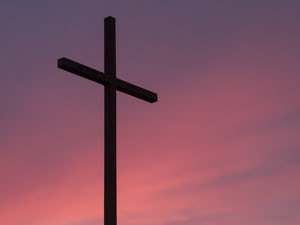
CHURCH COVENANT
Having been led, as we believe by the Spirit of God, to receive the Lord Jesus Christ as our Savior and, on the profession of our faith, having been baptized in the name of the Father, and of the Son, and of the Holy Spirit, we do now, in the presence of God, and this assembly, most solemnly and joyfully enter into covenant with one another as one body in Christ.
We engage, therefore, by the aid of the Holy Spirit to walk together in Christian love; to strive for the advancement of this church, in knowledge, holiness, and comfort; to promote its prosperity and spirituality and to sustain its worship, ordinances, discipline, and doctrines; to contribute cheerfully and regularly to the support of the ministry, the expenses of the church, the relief of the poor, and the spread of the gospel through all nations.
We also engage to maintain family and secret devotions; to religiously educate our children; to seek the salvation of our kindred and acquaintances; to walk circumspectly in the world; to be just in our dealings, faithful in our engagements, and exemplary in our deportment; to avoid all tattling, backbiting, and excessive anger; to abstain from the sale of, and use of, intoxicating drinks as a beverage; to be zealous in our efforts to advance the kingdom of our Savior.
We further engage to watch over one another in brotherly love; to remember one another in prayer; to aid one another in sickness and distress; to cultivate Christian sympathy in feeling and Christian courtesy in speech; to be slow to take offense, but always ready for reconciliation and mindful of the rules of our Savior to secure it without delay.
We moreover engage that when we remove from this place we will, as soon as possible, unite with some other church where we can carry out the spirit of this covenant and the principles of God's Word.
ARCHIVES
This section will cover past messages and articles that members might want to refer back to.
COMMUNITY EVENT HONORING BRO. JULIUS MCFARLIN
On Wednesday, October 7, 2025, at 6 p.m. the city of Merriam hosted a community event honoring Bro. Julius McFarlin, the deceased spouse of Mother Marzella McFarlin. The two practice soccer fields in Waterfall Park were named after Bro. McFarlin a number of years ago and a temporary sign was placed then honoring him. A permanent sign was placed in his honor. Waterfall Park is located near the church at 5191 Merriam Dr. in Merriam.
Bro. McFarlin was the Trustee Chairman Emeritus at Mt. Olive at the time of his death. He was also the first African-American elected to public office in Johnson County serving from 1973-2000 as Merriam's Ward 1 City Council member. In addition, he is credited with chartering the Johnson County Branch of the NAACP.
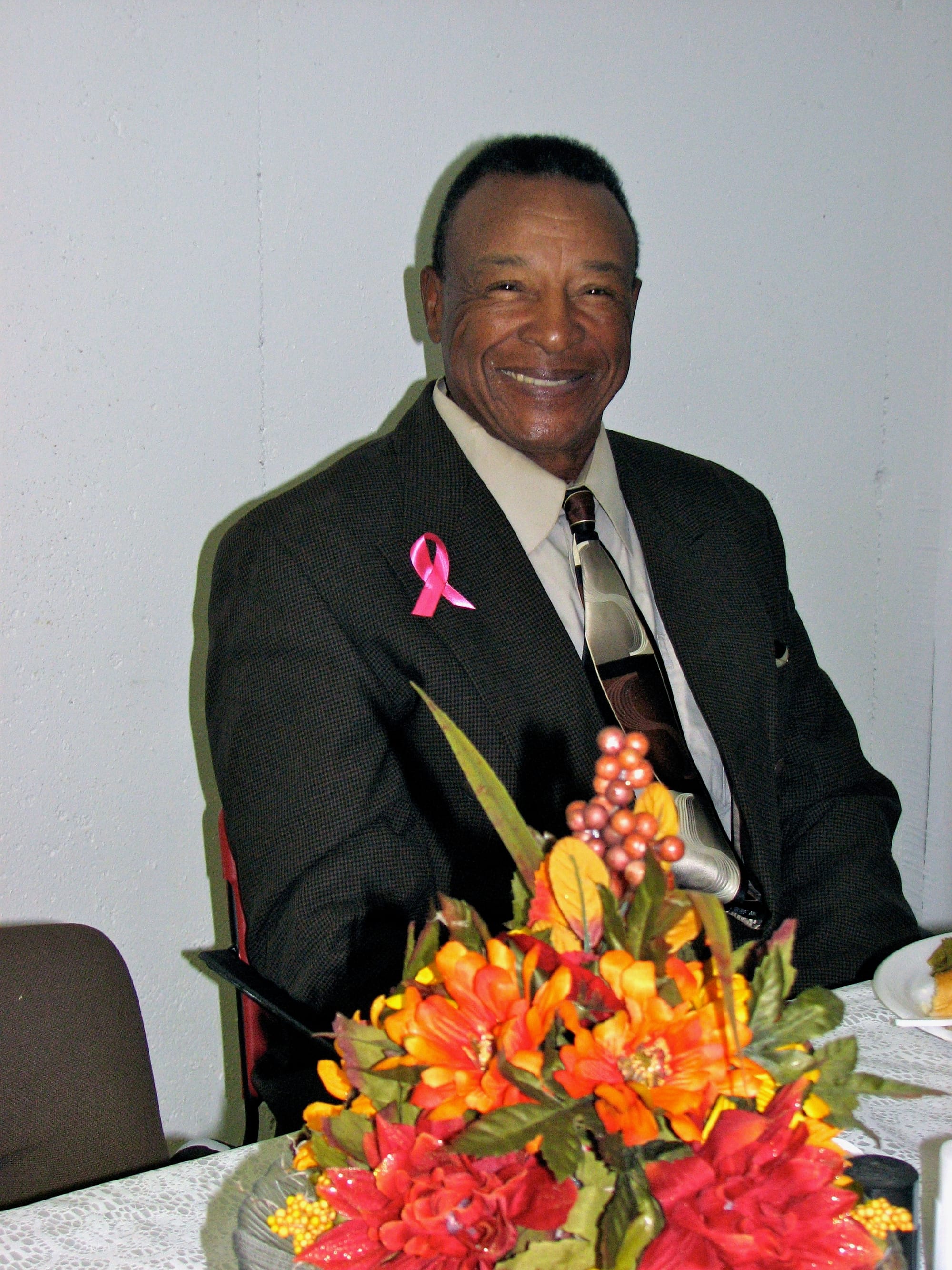
With deep sorrow we announce the passing of Deacon Sandy Jackson who unexpectedly went home to Glory on Sunday, October 4. This wonderful man was the Rock and foundation of his family and a pillar in our church. Words can't sufficiently express our deep, heartfelt love for Deacon Jackson. Oh, how we loved time spent listening to his wisdom and spiritual singing. And we rejoiced to see him dancing to the Lord. His smile was radiant and his humor brought laughter. He uplifted our spirit and brought so much joy. We will forever treasure our memories of him. He loved the extra sweets we sneaked him but always promised he wouldn't overeat them. Even as his mobility decreased, we admired his continued strength to ride his lawnmower or chair to cut the grass, chop wood, and pile logs in his truck. And, we certainly enjoyed the vegetables from his garden. He was such a strong giant. And always...always he had some encouraging Word from the Lord to feed our soul whether at church or at home. The funeral service of our beloved Deacon Sandy Jackson was held at Amos Family Funeral Home, 10901 Johnson Drive, Shawnee, KS 66203 on Saturday, October 17, 2020. Deacon Jackson was laid to rest in Pleasant View Cemetery in Shawnee, Kansas.
To paraphrase a card writer: "He's gone ahead of us and is waiting for us now...waiting in a place where every moment is happy and peaceful. Perhaps he's waiting to tell us another story, one with the happiest ending of all. And what seems to us to be an ending is really only the beginning."
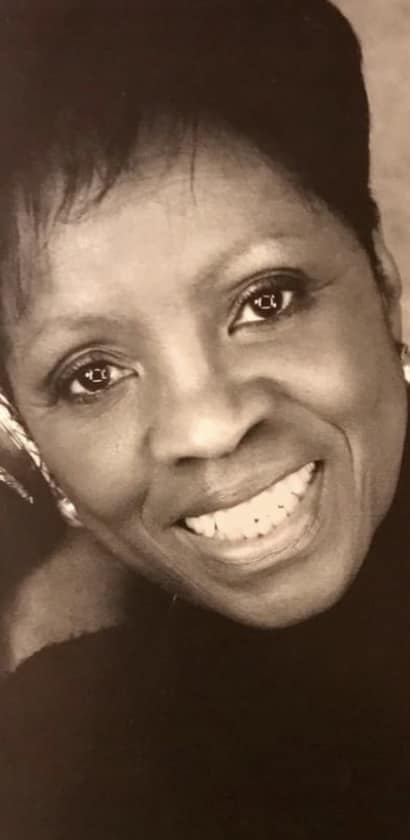
We celebrated the life of our beloved Imogene Player. Saturday, November 5, 2022 at Ward Parkway Presbyterian Church, 7406 Ward Parkway, Kansas City, MO, 64114.
- KNOW YOUR RIGHTS
Protesters’ Rights
The First Amendment protects your right to assemble and express your views through protest. However, police and other government officials are allowed to place certain narrow restrictions on the exercise of speech rights. Make sure you’re prepared by brushing up on your rights before heading out into the streets.
I’m ORGANIZING a protest - Your rights
Your rights are strongest in what are known as “traditional public forums,” such as streets, sidewalks, and parks. You also likely have the right to speak out on other public property, like plazas in front of government buildings, as long as you are not blocking access to the government building or interfering with other purposes the property was designed for.
Private property owners can set rules for speech on their property. The government may not restrict your speech if it is taking place on your own property or with the consent of the property owner.
Counterprotesters also have free speech rights. Police must treat protesters and counterprotesters equally. Police are permitted to keep antagonistic groups separated but should allow them to be within sight and sound of one another.
When you are lawfully present in any public space, you have the right to photograph anything in plain view, including federal buildings and the police. On private property, the owner may set rules related to photography or video.
Do I need a permit?
You don’t need a permit to march in the streets or on sidewalks, as long as marchers don’t obstruct car or pedestrian traffic. If you don’t have a permit, police officers can ask you to move to the side of a street or sidewalk to let others pass or for safety reasons.
Certain types of events may require permits. These include a march or parade that requires blocking traffic or street closure; a large rally requiring the use of sound amplifying devices; or a rally over a certain size at most parks or plazas.
While certain permit procedures require submitting an application well in advance of the planned event, police can’t use those procedures to prevent a protest in response to breaking news events.
Restrictions on the route of a march or sound equipment might violate the First Amendment if they are unnecessary for traffic control or public safety, or if they interfere significantly with effective communication to the intended audience.
A permit cannot be denied because the event is controversial or will express unpopular views. If the permit regulations that apply to your protest require a fee for a permit, they should allow a waiver for those who cannot afford the charge.
What to do if you believe your rights have been violated
When you can, write down everything you remember, including the officers’ badge and patrol car numbers and the agency they work for.
Get contact information for witnesses.
Take photographs of any injuries.
Once you have all of this information, you can file a written complaint with the agency’s internal affairs division or civilian complaint board.
I’m ATTENDING a protest -Your rights
Your rights are strongest in what are known as “traditional public forums,” such as streets, sidewalks, and parks. You also likely have the right to speak out on other public property, like plazas in front of government buildings, as long as you are not blocking access to the government building or interfering with other purposes the property was designed for.
Private property owners can set rules for speech on their property. The government may not restrict your speech if it is taking place on your own property or with the consent of the property owner.
Counterprotesters also have free speech rights. Police must treat protesters and counterprotesters equally. Police are permitted to keep antagonistic groups separated but should allow them to be within sight and sound of one another.
When you are lawfully present in any public space, you have the right to photograph anything in plain view, including federal buildings and the police. On private property, the owner may set rules related to photography or video.
You don’t need a permit to march in the streets or on sidewalks, as long as marchers don’t obstruct car or pedestrian traffic. If you don’t have a permit, police officers can ask you to move to the side of a street or sidewalk to let others pass or for safety reasons.
What to do if you believe your rights have been violated
When you can, write down everything you remember, including the officers’ badge and patrol car numbers and the agency they work for.
Get contact information for witnesses.
Take photographs of any injuries.
Once you have all of this information, you can file a written complaint with the agency’s internal affairs division or civilian complaint board.
What happens if the police issues an order to disperse the protest?
Shutting down a protest through a dispersal order must be law enforcement’s last resort. Police may not break up a gathering unless there is a clear and present danger of riot, disorder, interference with traffic, or other immediate threat to public safety.
If officers issue a dispersal order, they must provide a reasonable opportunity to comply, including sufficient time and a clear, unobstructed exit path. Individuals must receive clear and detailed notice of a dispersal order, including how much time they have to disperse, the consequences of failing to disperse, and what clear exit route they can follow, before they may be arrested or charged with any crime.
I want to take pictures or shoot video at a protest – Your rights
When you are lawfully present in any public space, you have the right to photograph anything in plain view, including federal buildings and the police. (On private property, the owner may set rules about photography or video.) Police officers may not confiscate or demand to view your photographs or video without a warrant, nor may they delete data under any circumstances. However, they may order citizens to cease activities that are truly interfering with legitimate law enforcement operations.
If you are videotaping, be aware that there is an important legal distinction between a visual photographic record (fully protected) and the audio portion of a videotape, which some states have tried to regulate under state wiretapping laws.
What to do if you are stopped or detained for taking photographs
Always remain calm and never physically resist a police officer. Police cannot detain you without reasonable suspicion that you have or are about to commit a crime or are in the process of doing so. If you are stopped, ask the officer if you are free to leave. If the answer is yes, calmly walk away. If you are detained, ask the officer what crime you are suspected of committing, and remind the officer that taking photographs is your right under the First Amendment and does not constitute reasonable suspicion of criminal activity.
What to do if you believe your rights have been violated
When you can, write down everything you remember, including the officers’ badge and patrol car numbers and the agency they work for.
Get contact information for witnesses.
Take photographs of any injuries.
Once you have all of this information, you can file a written complaint with the agency’s internal affairs division or civilian complaint board.
I was stopped by the police while protesting - Your rights
Stay calm. Make sure to keep your hands visible. Don’t argue, resist, or obstruct the police, even if you believe they are violating your rights. Point out that you are not disrupting anyone else’s activity and that the First Amendment protects your actions.
Ask if you are free to leave. If the officer says yes, calmly walk away.
If you are under arrest, you have a right to ask why. Otherwise, say you wish to remain silent and ask for a lawyer immediately. Don’t say anything or sign anything without a lawyer. You have the right to make a local phone call, and if you’re calling your lawyer, police are not allowed to listen.
You never have to consent to a search of yourself or your belongings. If you do explicitly consent, it can affect you later in court. Police may “pat down” your clothing if they suspect you have a weapon and may search you after an arrest.
Police officers may not confiscate or demand to view your photographs or video without a warrant, nor may they delete data under any circumstances. However, they may order citizens to cease activities that are truly interfering with legitimate law enforcement operations.
What to do if you believe your rights have been violated
When you can, write down everything you remember, including the officers’ badge and patrol car numbers and the agency they work for.
Get contact information for witnesses.
Take photographs of any injuries.
Once you have all of this information, you can file a written complaint with the agency’s internal affairs division or civilian complaint board.
Source: ACLU https://www.aclu.org/know-your-rights/protesters-rights/
Reopening Church After Covid: 7 Principles from Scripture
Use these principles to reopen your church wisely and effectively.
MAY 18, 2020
By Paul Maxwell
Many church leaders are making decisions they’ve never had to make before. For the first time, many churches were forced to close their doors for the safety of their people. Others were forced to use online giving for the first time in order to remain solvent. Still others had to shut their doors for good because they did not have the money to remain open. And yet, as states begin to reopen, pastors will have to make many similar decisions for the first time:
- When do we reopen?
- How should we reopen?
- What if people are upset with us (one way or another)?
- Should we continue to live stream online?
- How can we serve those who want to reopen and those who must remain home at the same time?
Today, we are going to answer all of those questions.
Just as God guided you safely through the narrow caverns of COVID’s threat, he will guide you out into the safe harbor of a new normal. Let’s dig into seven actions church leaders can take to reopen effectively, safely, and smoothly.
Obey federal and state authorities.
Liaison with your local police, fire, and volunteer groups to ensure that your reopening strategies are in compliance with local, state, and federal law. The Apostle Paul commends this to churches as well:
“Let every person be subject to the governing authorities. For there is no authority except from God, and those that exist have been instituted by God. Therefore whoever resists the authorities resists what God has appointed, and those who resist will incur judgment.” (Rom. 13:1-2)
While the church is not an institution of the state, churches should follow the guidelines of their local authorities, not only because it gains them a favorable reputation in the community as a church that cares about the wellbeing of its municipality’s general public, but also because this is the biblical thing to do.
2. Educate your church on local reopening information.
Become the authority on your local orders, not only for your church, but also for your entire local community. People are confused right now about where to get the best information about their local communities. Make that process easy for them.
Designate several hours per week to a staff member to research the latest policies and conversations about COVID reopening in your area. Paul tells the Ephesians:
“Pay careful attention to yourselves and to all the flock, in which the Holy Spirit has made you overseers, to care for the church of God, which he obtained with his own blood.” (Acts 20:28)
Part of paying careful attention to yourselves and your flock is by helping them understand what it means to be in compliance with local authorities. More than that, this is actually an evangelistic opportunity. People in your area may subscribe to your church’s mailing list or visit your website for the most up-to-date information about your local municipality’s policies. By establishing yourself as an authority in this area, word of mouth can easily turn into an idea to stream church one Sunday, or even to visit when things reopen. More than that, by establishing a reputation as a church that cares about local orders, people will be more inclined to visit your church after it reopens, because they know that you care deeply about these issues. Think about this as one additional church outreach idea you can notch in your belt.
3. Protect and serve the vulnerable.
James writes:
“Religion that is pure and undefiled before God, the Father, is this: to visit orphans and widows in their affliction, and to keep oneself unstained from the world.” (James 1:27)
If your church isn’t caring for those most vulnerable to COVID infection, it’s not fulfilling what the Bible calls “religion that is pure.”
Paul commends the same thing:
“Honor widows who are truly widows. But if a widow has children or grandchildren, let them first learn to show godliness to their own household and to make some return to their parents, for this is pleasing in the sight of God.” (1 Tim. 5:3-4)
Work with families in your church to enable them to serve the vulnerable among them—whether that is a child with asthma, an elderly person who is isolated in a nursing home, or another family member with a pre-existing condition. This should be one of the primary priorities of your church during this time.
4. Double down on digital church.
It’s tempting to think of the digital tools churches have used to survive the COVID pandemic as a relic of a quarantined time. This would be a mistake for several reasons.
First, not everyone will be returning to church immediately. Some will be suspicious about reopening. Others will simply be unable because of a preexisting condition. For their sakes, you should continue to stream your church service online for as long as possible.
Second, your team should be leaning heavily into digital tools for church anyway for several reasons. You don’t know when another pandemic may occur, in which case having scrapped your digital infrastructure will require you to reinvent the wheel again. But more than that, you should enable your church to connect with your community virtually no matter what season you’re in. Having a robust digital infrastructure that enables people to participate in your church service easily, and from anywhere, is part of what it means to love those who are geographically or physically impaired from visiting.
As the Apostle Paul states:
“Let each of you look not only to his own interests, but also to the interests of others.” (Phil. 2:4)
5. Keep gatherings small.
This might mean encouraging more of a house church model for the time being. Recruit leaders in your church to host small gatherings during the Sunday Service for which people can sign up and share in church community together. There is precedent for this in the early church:
“And every day, in the temple and from house to house, they did not cease teaching and preaching Jesus as the Christ.” (Acts 5:31)
I’m sure there were some temple “purists” who insisted that those worshipping “from house to house” were not really church. But that’s not how Luke tells the story. They were preaching Jesus as the Christ, and they were gathered together in worship. That was enough then, and it is certainly enough now.
6. Continue to practice heightened sanitation practices.
The Apostle Paul asks us to be mindful of others, because we are part of the same body:
“For as in one body we have many members, and the members do not all have the same function, so we, though many, are one body in Christ, and individually members one of another. Having gifts that differ according to the grace given to us, let us use them” (Rom. 12:4-5)
Continue to practice above-normal sanitation protocol in your church for the sake of those who (1) physically require a clean space due to COVID susceptibility and (2) have a softer conscience about how to care for those who desire to physically attend church.
Yes, it would be easy to say: “If they’re susceptible to COVID, they shouldn’t physically attend church yet!” However, this would fall beneath the bar of Paul’s command. We ought to use our gifts to serve others, not lord their disabilities or softer consciences over them. Make it as easy as possible for the largest number of people to choose to physically attend church. That’s what it means to serve those in the body.
7. Continue to fundraise.
During a time of economic crisis, it’s tempting to stop fundraising out of guilt. However, this instinct is rooted in a twisted view of church giving. Here’s the truth: Giving is an opportunity to worship God, to bless others, and to receive blessing from God by offering up a pleasing sacrifice to him. The author of Hebrews writes:
“Do not neglect to do good and to share what you have, for such sacrifices are pleasing to God.” (Heb. 13:16)
“Do not neglect to do good and to share what you have.” By continuing to ask church attendees to give, you continue to offer up sacrifices that are “pleasing to God.” Don’t rob them of that opportunity.
Over to you
In these uncertain times, many church leaders are overwhelmed with anxiety.
But remember: There are good guidelines to follow, and you do not have to lead your church perfectly to lead your church well. Follow the wisdom principles outlined above, because they are biblical principles that will guide your church through this difficult time when you are unable to see the shore beyond the horizon of suffering. God has not abandoned your church, and he has placed you in the position to believe, communicate, and exemplify that to your people. What feels like failure on every side will turn into a battle-worn tale of tragedy and glory—of how your church stepped up and served your community with light and hope during a time of chaos and confusion. May God give your church all of the grace and mercy that it deserves during this difficult season.
Paul Maxwell
Paul Maxwell, Ph.D., is the Content Strategist at Tithe.ly.
Considerations for Communities of Faith
Updated Feb. 19, 2021
COVID-19 Cases are Extremely High. Avoid Events and Gatherings
COVID-19 cases, hospitalizations, and deaths are extremely high across the United States. To decrease your chance of getting and spreading COVID-19, CDC recommends that you do not gather with people who do not live with you at this time. Attending events and gatherings increases your risk of getting and spreading COVID-19. Stay home to protect yourself and others from COVID-19.
CDC offers the following general considerations to help communities of faith discern how best to practice their beliefs while keeping their staff and congregations safe. Millions of Americans embrace worship as an essential part of life. For many faith traditions, gathering together for worship is at the heart of what it means to be a community of faith. But as Americans are now aware, gatherings present a risk for increasing spread of COVID-19 during this Public Health Emergency. CDC offers these suggestions for faith communities to consider and accept, reject, or modify, consistent with their own faith traditions, in the course of preparing to reconvene for in-person gatherings while still working to prevent the spread of COVID-19.
This guidance is not intended to infringe on rights protected by the First Amendment to the U.S. Constitution or any other federal law, including the Religious Freedom Restoration Act of 1993 (RFRA). The federal government may not prescribe standards for interactions of faith communities in houses of worship, and in accordance with the First Amendment, no faith community should be asked to adopt any mitigation strategies that are more stringent than the mitigation strategies asked of similarly situated entities or activities.
In addition, we note that while many types of gatherings are important for civic and economic well-being, religious worship has particularly profound significance to communities and individuals, including as a right protected by the First Amendment. State and local authorities are reminded to take this vital right into account when establishing their own re-opening plans.
Scaling Up Operations
- Establish and maintain communication with local and State authorities to determine current mitigation levels in your community.
- Provide protections for staff and congregants at higher risk for severe illness from COVID-19. Offer options for staff at higher risk for severe illness (including older adults and people of all ages with certain underlying medical conditions) that limit their exposure risk. Offer options for congregants at higher risk of severe illness that limit their exposure risk (e.g., remote participation in services).
- Consistent with applicable federal and State laws and regulations, put in place policies that protect the privacy and confidentiality of people at higher risk for severe illness regarding underlying medical conditions.
- Encourage any organizations that share or use the facilities to also follow these considerations as applicable.
- If your community provides social services in the facility as part of its mission, consult CDC’s information for schools and businesses and workplaces, as relevant, for helpful information.
Safety Actions
Continue to take these steps to reduce your risk of getting and spreading COVID-19:
- Correctly and consistently wear a mask that completely covers your nose and mouth
- Stay at least 6 feet away from others who do not live with you
- Avoid crowds
- Avoid poorly ventilated indoor spaces
- Stay home when you are sick
- Wash your hands frequently with soap and water for at least 20 seconds (or use hand sanitizer containing at least 60% alcohol)
- Get vaccinated when the vaccine is available to you
- Get tested if you have signs or symptoms of COVID-19, or if you think you may have been exposed to someone with COVID-19
Even if you and others (including children) do not feel sick and do not have any symptoms, you can still spread COVID-19 to family, friends, and community.
Do NOT be around others if you have been exposed to someone with COVID-19, if you are sick, or if you have tested positive for COVID-19.
Promote healthy hygiene practices
- Encourage staff and congregants to maintain good hand hygiene, washing hands with soap and water for at least 20 seconds.
- Ensure you have accessible sinks and enough supplies for people to clean their hands and cover their coughs and sneezes. Supplies include soap, water, a way to dry hands (e.g., paper towels, hand dryer), tissues, hand sanitizer with at least 60 percent alcohol (for those who can safely use hand sanitizer), and no-touch/foot pedal trash cans (preferably covered).
- Encourage staff and congregants to cover coughs and sneezes with a tissue or use the inside of their elbow. Used tissues should be thrown in the trash and hands washed.
- Whenever soap and water are not readily available, hand sanitizer with at least 60% alcohol can be used.
- Consider posting signs on how to stop the spreadpdf icon of COVID-19 and how to promote everyday protective measurespdf icon, such as washing hands, covering coughs and sneezes, and properly wearing a maskimage icon.
Masks
- Encourage use of masks among staff and congregants. Masks are most essential when social distancing is difficult. Note: Masks should not be placed on children younger than 2 years old, anyone who has trouble breathing or is unconscious, and anyone who is incapacitated or otherwise unable to remove the mask without assistance. Masks offer some protection to the wearer and are also meant to protect those around the wearer, in case they are infected with the virus that causes COVID-19.
Intensify cleaning, disinfection, and ventilation
- Clean and disinfect frequently touched surfaces at least daily and shared objects in between uses.
- Develop a schedule of increased, routine cleaning and disinfection.
- Avoid use of items that are not easily cleaned, sanitized, or disinfected.
- Ensure safe and correct application of disinfectants and keep them away from children.
- Cleaning products should not be used near children, and staff should ensure that there is adequate ventilation when using these products to prevent children or themselves from inhaling toxic fumes.
- Ensure that ventilation systems operate properly and increase circulation of outdoor air as much as possible by opening windows and doors, using fans, etc. Do not open windows and doors if they pose a safety risk to children using the facility.
- If your faith community offers multiple services, consider scheduling services far enough apart to allow time for cleaning and disinfecting high-touch surfaces between services. Take steps to ensure that all water systems and features (for example, drinking fountains, decorative fountains) are safe to use after a prolonged facility shutdown to minimize the risk of Legionnaires’ disease and other diseases associated with water.
Promote social distancing
- Take steps to limit the size of gatherings in accordance with the guidance and directives of state and local authorities and subject to the protections of the First Amendment and any other applicable federal law.
- Promote social distancing at services and other gatherings, ensuring that clergy, staff, choir, volunteers and attendees at the services follow social distancing, as circumstances and faith traditions allow, to lessen their risk.
- Consider holding services and gatherings in a large, well-ventilated area or outdoors, as circumstances and faith traditions allow.
- Consider appropriate mitigation measures, including taking steps to limit the size of gatherings maintaining social distancing, at other gatherings such as funerals, weddings, religious education classes, youth events, support groups and any other programming, where consistent with the faith tradition.
- Provide physical guides, such as tape on floors or walkways and signs on walls, to ensure that staff and children remain at least 6 feet apart in lines and at other times (e.g. guides for creating “one-way routes” in hallways).
Take steps to minimize community sharing of worship materials and other items
- Consistent with the community’s faith tradition, consider temporarily limiting the sharing of frequently touched objects, such as worship aids, prayer rugs, prayer books, hymnals, religious texts and other bulletins, books, or other items passed or shared among congregants, and encouraging congregants to bring their own such items, if possible, or photocopying or projecting prayers, songs, and texts using electronic means.
- Modify the methods used to receive financial contributions. Consider a stationary collection box, the main, or electronic methods of collection regular financial contributions instead of shared collection trays or baskets.
- Consider whether physical contact (e.g., shaking hands, hugging, or kissing) can be limited among members of the faith community.
- If food is offered at any event, consider pre-packaged options, and avoid buffet or family-style meals if possible.
Nursery/Childcare
- If a nursery or childcare will be provided during services and events, refer to CDC’s information on preventing the spread of COVID-19 in childcare settings and adapt as needed for your setting.
- If holding summer day camps, refer to CDC’s information on youth and summer camps and adapt as needed.
Staffing and Training
- Train all clergy and staff in the above safety actions. Consider conducting the training virtually, or, if in-person, ensure that social distancing is maintained.
Monitoring and Preparing
Check for signs and symptoms
- Encourage staff or congregants who are sick or who have had close contact with a person with COVID-19 to stay home. Share CDC’s criteria for staying home with staff and congregants so that they know how to care for themselves and others. Consider posting signs at entrances with this information.
Plan for when a staff member or congregant becomes sick
- Identify an area to separate anyone who exhibits symptoms of COVID-19 during hours of operation, and ensure that children are not left without adult supervision.
- Establish procedures for safely transporting anyone who becomes sick at the facility to their home or a healthcare facility.
- Notify local health officials if a person diagnosed with COVID-19 has been in the facility and communicate with staff and congregants about potential exposure while maintaining confidentiality as required by the Americans with Disabilities Act (ADA)external icon or other applicable laws and in accordance with religious practices.
- Advise those with exposure to a person diagnosed with COVID-19 to stay home and self-monitor for symptoms, and follow CDC guidance if symptoms develop.
- Close off areas used by the sick person and do not use the area until after cleaning and disinfection. Ensure safe and correct application of disinfectants and keep disinfectant products away from children.
- Advise staff and congregants with symptoms of COVID-19 or who have tested positive for COVID-19 not to return to the facility until they have met CDC’s criteria to discontinue home isolation.
Maintain healthy operations
- Implement flexible sick leave and related flexible policies and practices for staff (e.g., allow work from home, if feasible), and provide requested reasonable accommodation absent undue hardship to individuals with disabilities under the Americans with Disabilities Act (ADA)external icon or other applicable laws and in accordance with religious practices.
- Monitor absenteeism and create a roster of trained back-up staff.
- Designate a staff person to be responsible for responding to COVID-19 concerns. Staff, clergy, volunteers, and congregants should know who this person is and how to contact them if they become sick or are around others diagnosed with COVID-19. This person should also be aware of state or local regulatory agency policies related to group gatherings.
- As volunteers often perform important duties (e.g., greeters, ushers, childcare), consider similar monitoring, planning, and training for them. Consider that volunteer and staffing may need to increase to implement cleaning and safety protocols and to accommodate additional services with reduced attendance.
- Communicate clearly with staff and congregants about actions being taken to protect their health.
Signs and Messages
- Post signs in highly visible locations (e.g., entrances, restrooms, gathering halls/community rooms/gyms) that promote everyday protective measurespdf icon and describe how to stop the spreadpdf icon of germs (such as by properly washing hands and properly wearing a maskimage icon).
- Include messages (for example, videos) about behaviors that prevent the spread of COVID-19 when communicating with staff and congregants (such as in emails and on community websites and social media accounts).
- Find freely available CDC print and digital resources on CDC’s communications resources main page.
Closing
- Check state and localexternal icon health department notices daily about transmission in the community and adjust operations.
- In the event a person diagnosed with COVID-19 is determined to have been in the building and poses a risk to the community, it is strongly suggested to dismiss attendees, then properly clean and disinfect the area and the building where the individual was present before resuming activities.
